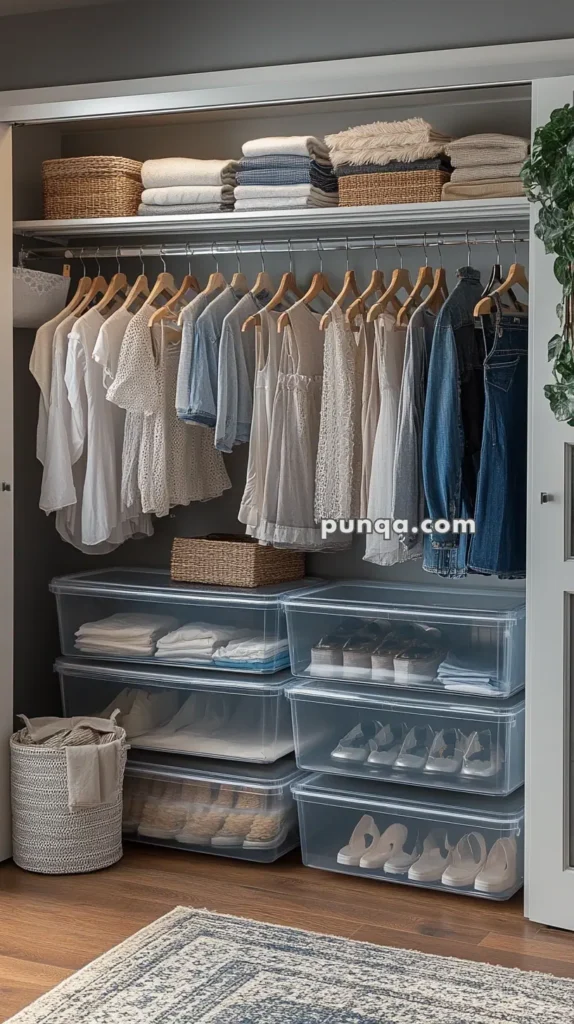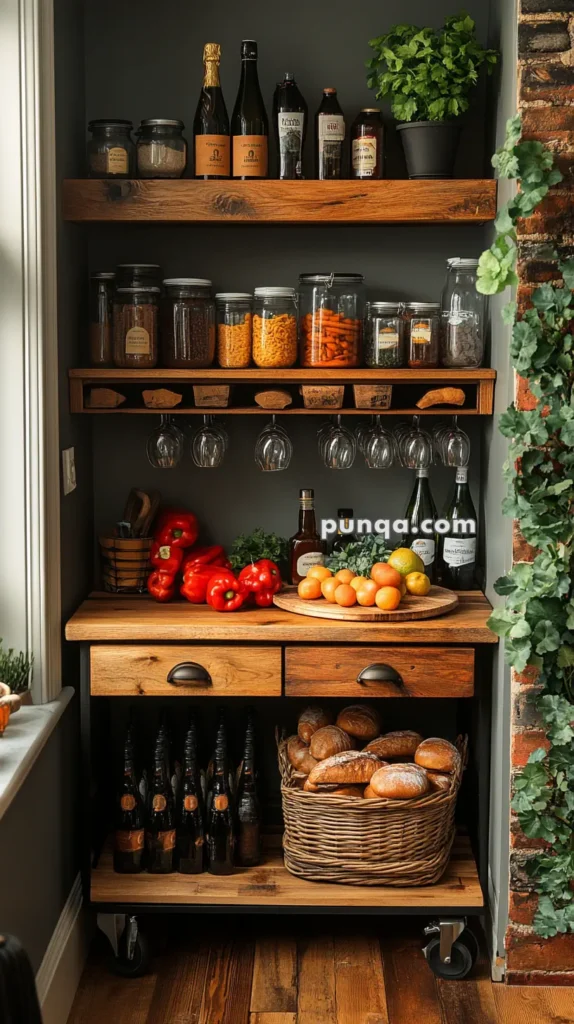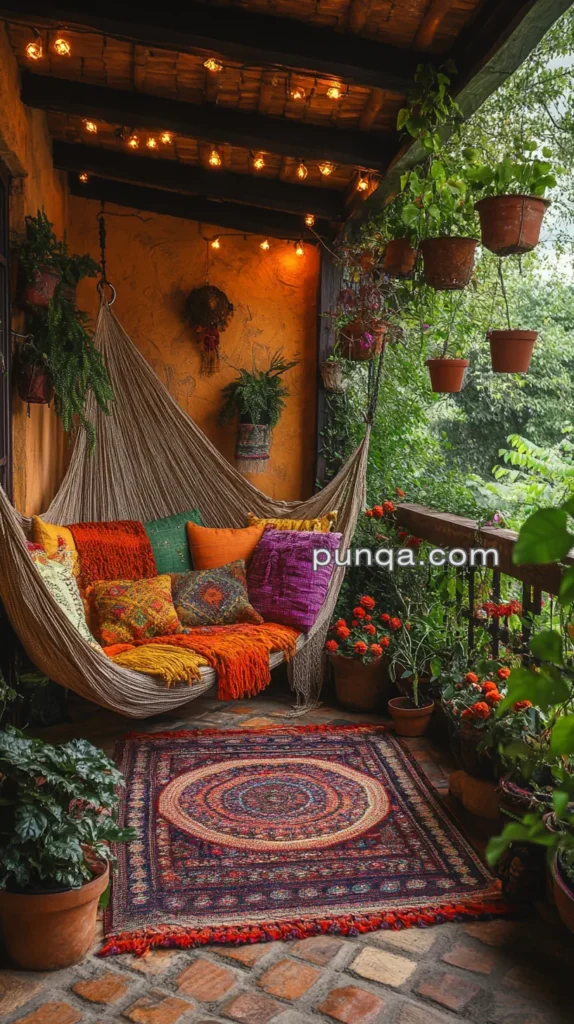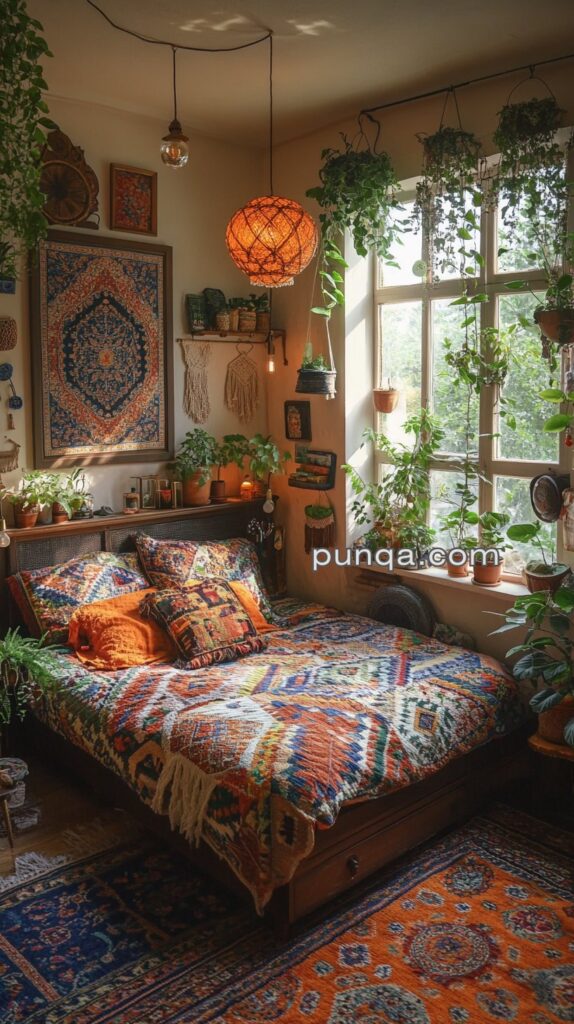Feng Shui, the ancient Chinese practice of harmonizing individuals with their surrounding environment, is particularly powerful in small spaces like tiny homes. By carefully arranging your living space, you can enhance the flow of energy, or “Chi,” to create a balanced, peaceful, and more functional home. This guide will explore practical tips for mastering Feng Shui in tiny homes, ensuring that even the smallest spaces feel open, inviting, and energetically balanced.
1. Clear the Clutter
Importance of Decluttering
Clutter disrupts the flow of energy, causing stagnation and blocking positive Chi. In a tiny home, where space is limited, it’s crucial to keep your environment clean and clutter-free. This not only improves the energy flow but also makes your space feel more spacious and inviting.
Effective Decluttering Tips
- Keep Only What You Love: Adopt a minimalist mindset by holding onto items that bring you joy and letting go of things that don’t serve a purpose.
- Organize and Store: Use storage solutions like bins, baskets, and shelves to keep your belongings organized and out of sight. This helps maintain a clean and open space.
- Regularly Purge: Make decluttering a regular habit, assessing your possessions periodically to ensure that your space remains free of unnecessary items.
2. Optimize Your Home’s Layout
Command Position
In Feng Shui, the “command position” is the spot in a room that allows you to see the door while not being directly in line with it. This position is crucial for the bed, desk, and stove, as it represents control and security in your life.
- Bed Placement: Place your bed so that you can see the door but are not directly in line with it. This promotes a sense of safety and relaxation.
- Desk and Stove: Apply the same principle to your desk and stove. Being in command of your workspace and kitchen helps you feel more empowered and in control.
Open Spaces
Small homes can feel cramped if not arranged properly. Ensure that your furniture placement allows for an open and unobstructed flow of energy throughout the space.
- Avoid Blocked Pathways: Keep pathways clear by arranging furniture to allow easy movement. This encourages a smooth flow of energy and prevents stagnation.
- Use Multi-Functional Furniture: Opt for furniture that serves multiple purposes, such as a sofa bed or a dining table that doubles as a workspace. This reduces clutter and makes better use of your space.
3. Balance the Five Elements
Incorporating the Elements
Feng Shui is based on the balance of five elements: Wood, Fire, Earth, Metal, and Water. Incorporating these elements into your home’s design can create a harmonious and balanced environment.
- Wood: Add wooden furniture or plants to bring in the element of growth and vitality.
- Fire: Use candles, lamps, or red and orange accents to represent the fire element, which brings energy and passion.
- Earth: Incorporate earthy tones, ceramics, or stones to ground your space and provide stability.
- Metal: Include metal objects, mirrors, or white and gray colors to enhance clarity and precision.
- Water: Add water features, like a small fountain or images of water, to encourage flow and abundance.
Achieving Balance
Ensure that no one element dominates the space. A balanced representation of all five elements creates a harmonious environment where energy can flow freely.
4. Enhance Natural Light and Air Flow
Importance of Light
Natural light is vital in Feng Shui as it represents yang energy, which is active and invigorating. Maximizing natural light in your tiny home helps energize the space and promotes a positive atmosphere.
- Use Mirrors Wisely: Place mirrors strategically to reflect light into darker areas. Mirrors can also create the illusion of more space, which is beneficial in tiny homes.
- Keep Windows Clear: Avoid blocking windows with heavy curtains or furniture. Clean windows regularly to allow the maximum amount of light to enter your home.
Air Flow
Good air circulation is essential for maintaining fresh, positive energy in your home. Stale air can trap negative energy, so it’s important to keep your space well-ventilated.
- Open Windows: Whenever possible, open your windows to let in fresh air and clear out stagnant energy.
- Use Plants: Indoor plants not only add the wood element to your space but also help purify the air, promoting a healthier and more vibrant environment.
5. Create a Tranquil Sleeping Area
Bed Placement
As mentioned earlier, the bed should be in the command position. This placement enhances your sense of security and helps you sleep more peacefully.
- Avoid Mirrors Facing the Bed: Mirrors can reflect energy and disturb your sleep. If you have a mirror in your bedroom, ensure it’s not facing the bed directly.
- Soothing Colors: Use calming colors like soft blues, greens, or earth tones in your bedroom. These colors promote relaxation and help create a restful atmosphere.
Minimize Electronics
Electronics emit electromagnetic fields (EMFs) that can disrupt sleep and energy flow. Keep electronics out of the bedroom, or at least away from the bed, to maintain a peaceful environment.
6. Mind the Entrance
The Mouth of Chi
The entrance to your home is known as the “mouth of Chi” in Feng Shui. This is where energy enters your space, so it’s important to keep the entrance clear, clean, and inviting.
- Welcoming Entryway: Ensure your entryway is well-lit and free of clutter. A welcoming entrance invites positive energy into your home.
- Front Door Maintenance: Keep your front door in good condition, with a fresh coat of paint and working hardware. A strong, well-maintained door symbolizes protection and invites opportunities into your life.
Doormat and Decor
Your doormat and entryway decor can also influence the energy entering your home. Choose a doormat that’s clean and in good condition, and consider adding plants or decor that represents your personal style.
7. Incorporate Personal Touches
Meaningful Decor
Surround yourself with items that bring you joy and reflect your personal values. Incorporating meaningful decor not only enhances the energy of your home but also creates a space that feels uniquely yours.
- Family Photos and Art: Display family photos, artwork, or other items that inspire happiness and positivity. These personal touches reinforce positive energy and make your space feel more connected to you.
Balance and Symmetry
Feng Shui emphasizes balance, which can be achieved through symmetry in your decor. Pair items like lamps, chairs, or plants to create a sense of harmony and order in your space.
- Decor Groupings: Arrange decor in groups of two or other even numbers to promote balance. This simple technique can help stabilize the energy in your home.
Conclusion
Mastering Feng Shui in a tiny home is about creating a space where energy can flow freely, promoting balance, peace, and positive vibes. By decluttering, optimizing your layout, balancing the five elements, and paying attention to light and air flow, you can transform your small space into a harmonious and inviting sanctuary. These principles of Feng Shui will help you make the most of your tiny home, ensuring it feels open, calm, and energetically aligned.
FAQs
Q1: How can I use Feng Shui to make my tiny home feel more spacious? A: Declutter regularly, use mirrors to reflect light, and arrange furniture to allow for easy movement. These practices enhance energy flow and make your space feel larger.
Q2: What colors are best for a tiny home in Feng Shui? A: Soothing colors like soft blues, greens, and earth tones are ideal for promoting calm and relaxation. These colors help balance the energy in your space.
Q3: How can I balance the five elements in a small space? A: Incorporate each element—Wood, Fire, Earth, Metal, and Water—through decor, colors, and materials. Ensure that no one element dominates the space, creating a harmonious environment.
Q4: What is the command position in Feng Shui, and why is it important? A: The command position allows you to see the door while not being directly in line with it. It’s important because it promotes a sense of security and control, especially for the bed, desk, and stove.
Q5: How can I improve the energy flow in a tiny home? A: Keep pathways clear, ensure good air circulation, and maximize natural light. These steps encourage positive energy to flow freely throughout your space.
By following these Feng Shui tips, you can create a tiny home that feels balanced, harmonious, and full of positive energy, making it a truly peaceful and inviting place to live.
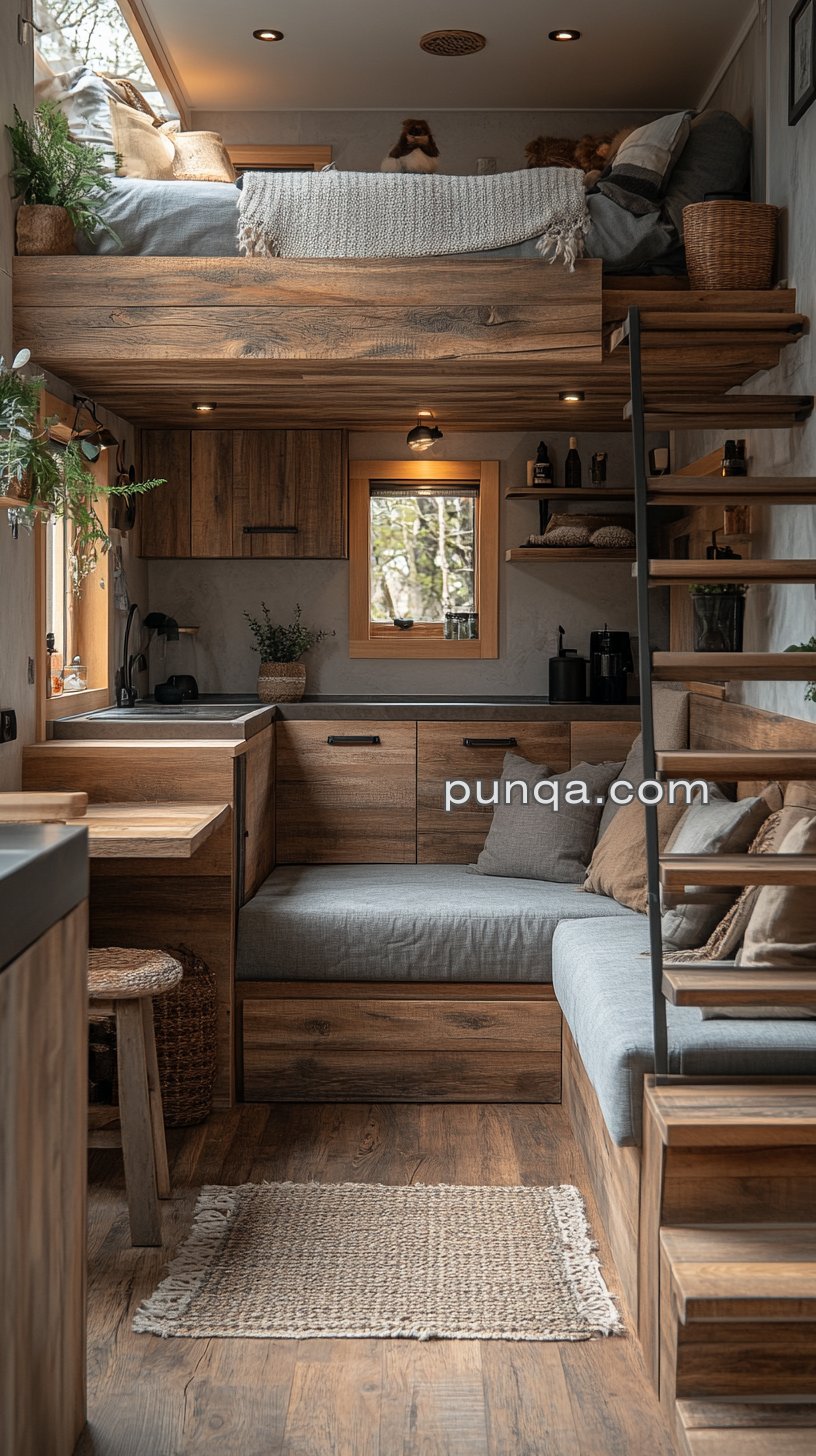
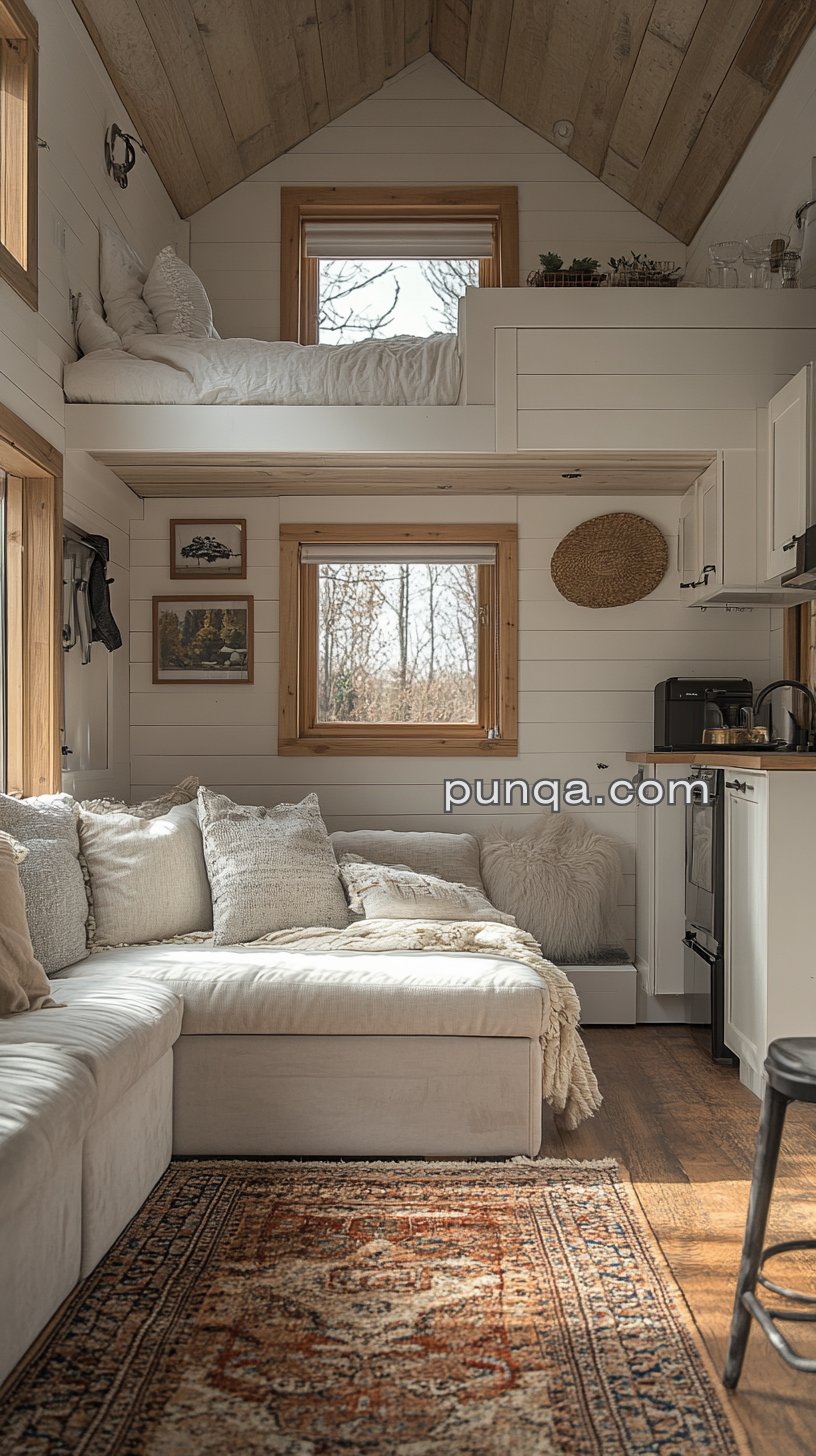
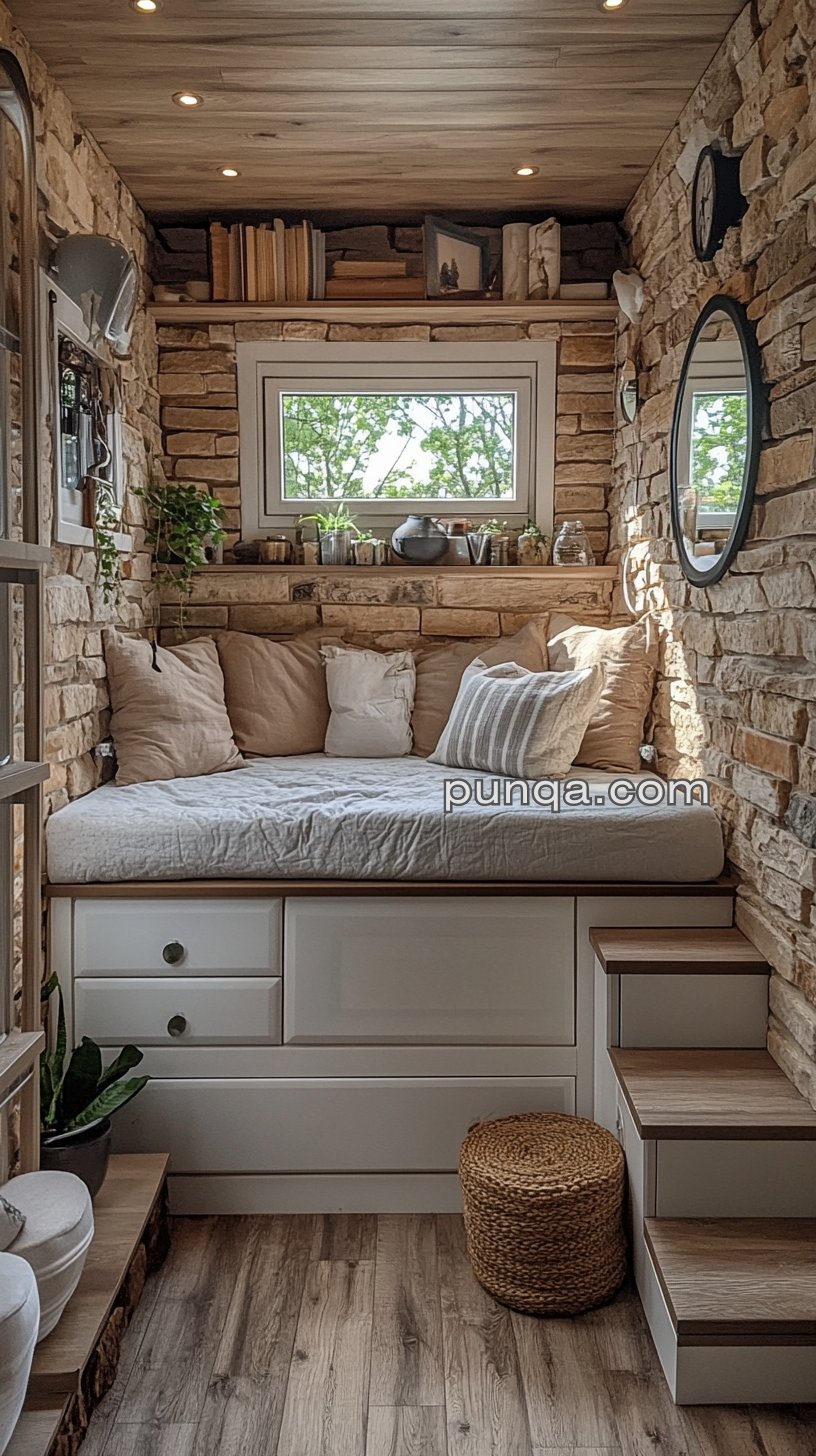
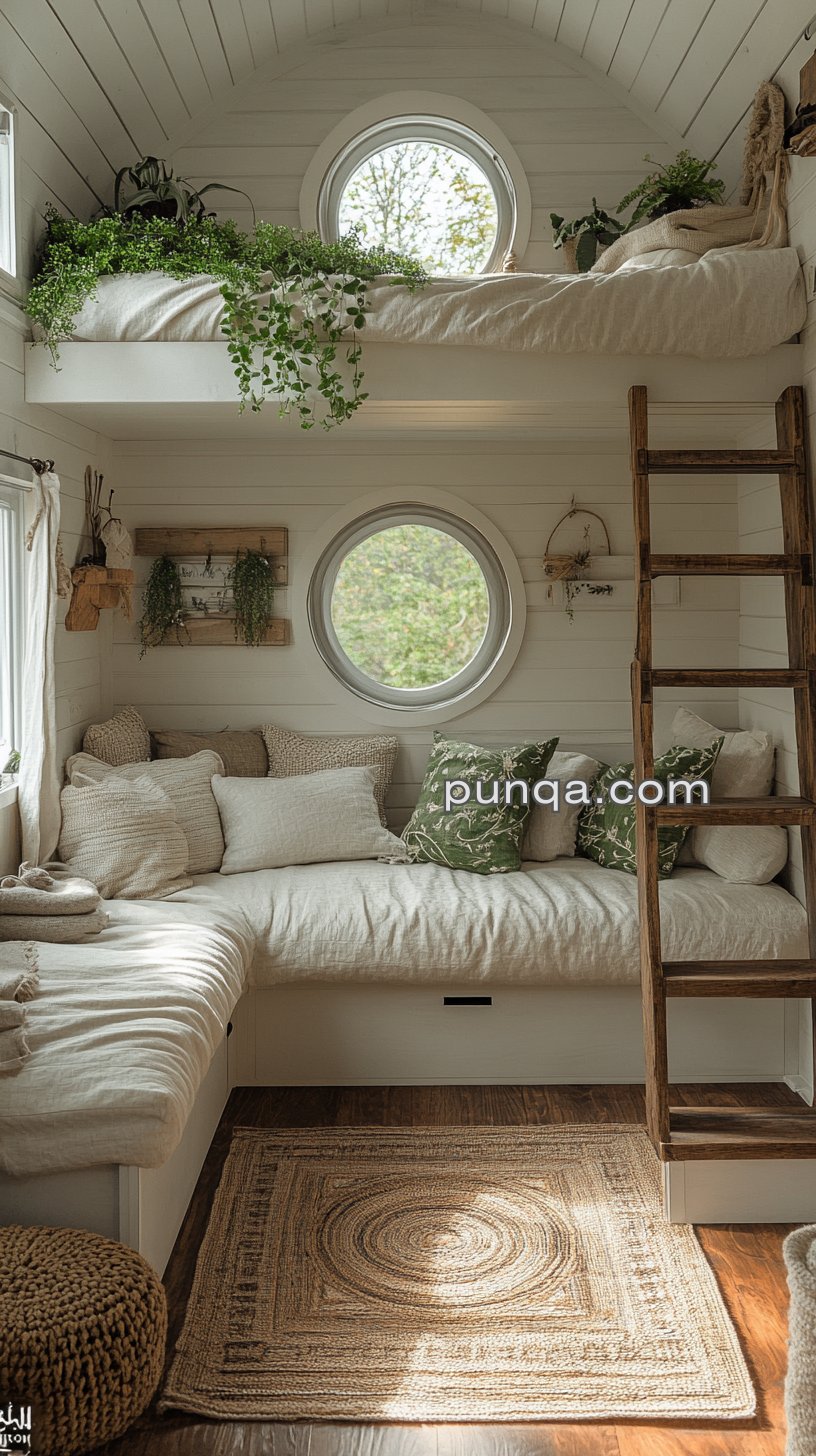
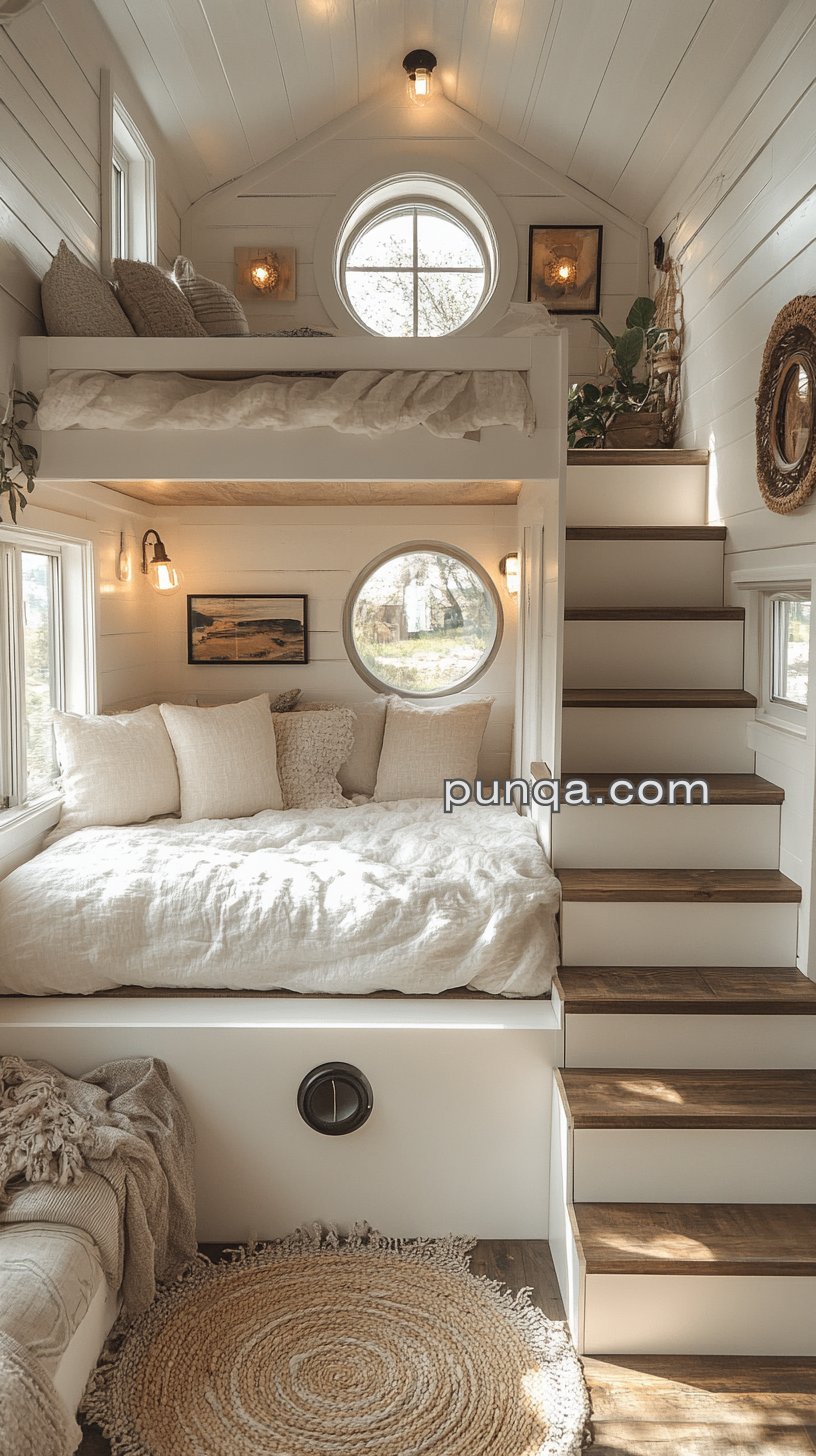
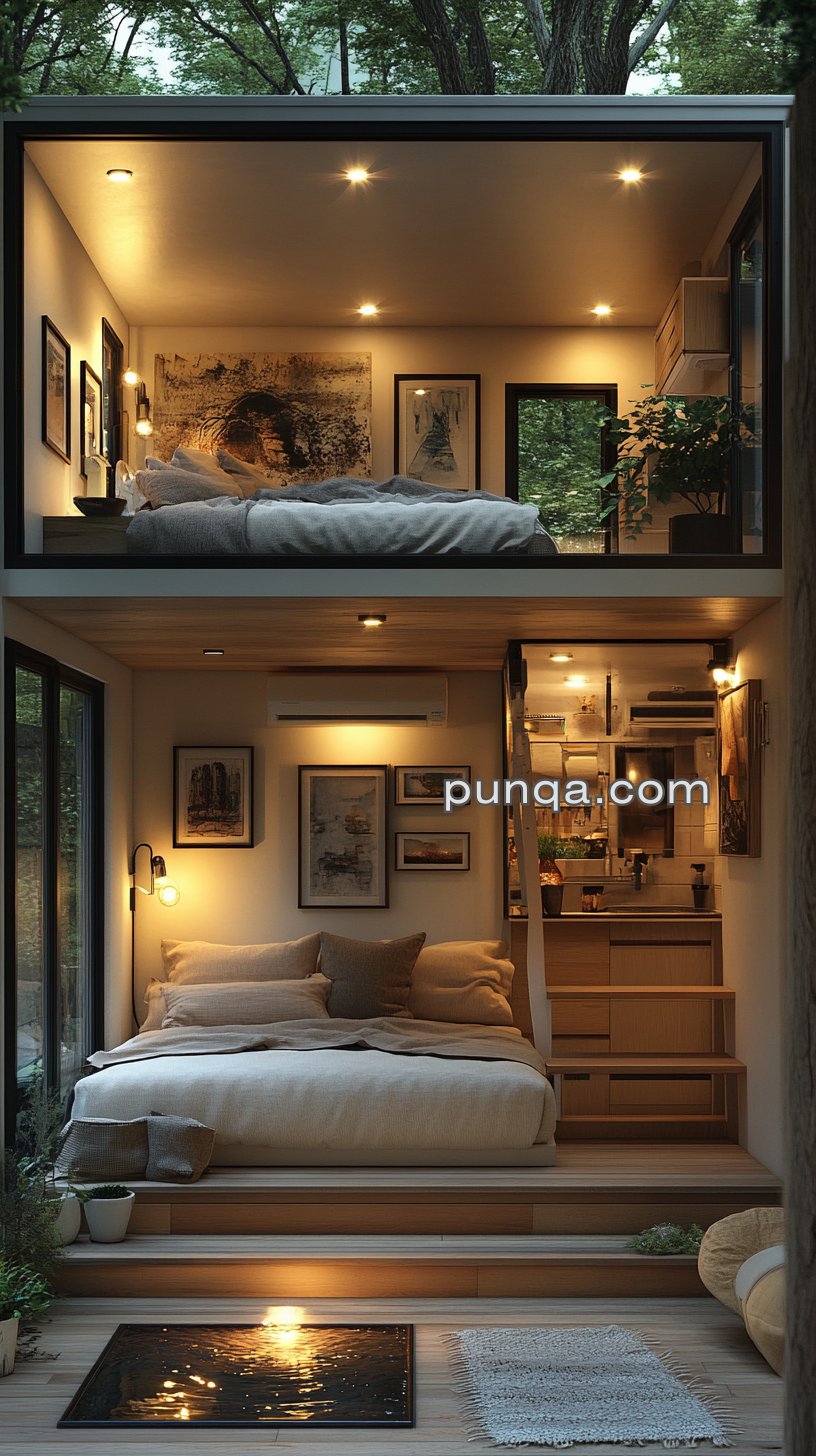
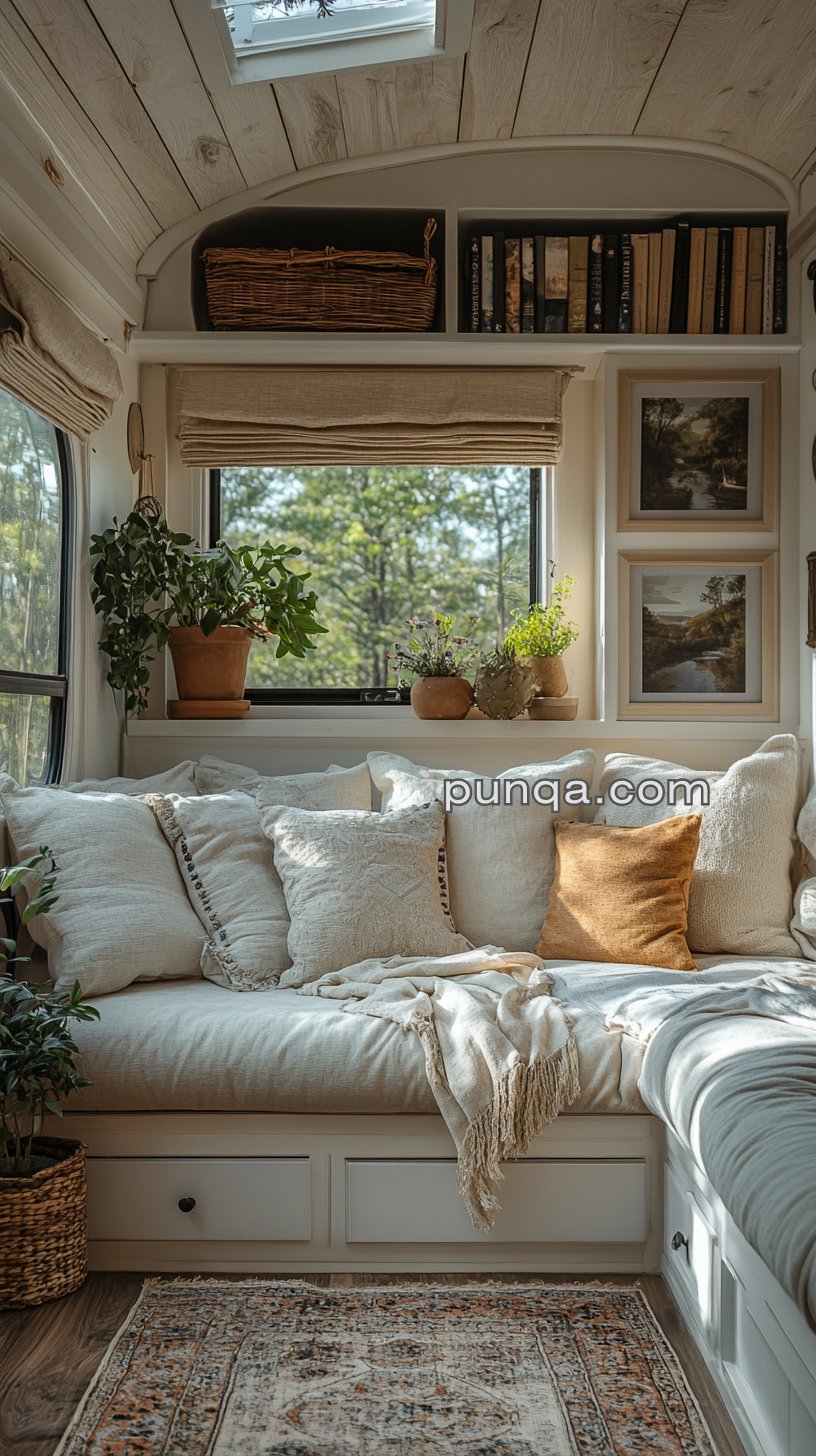
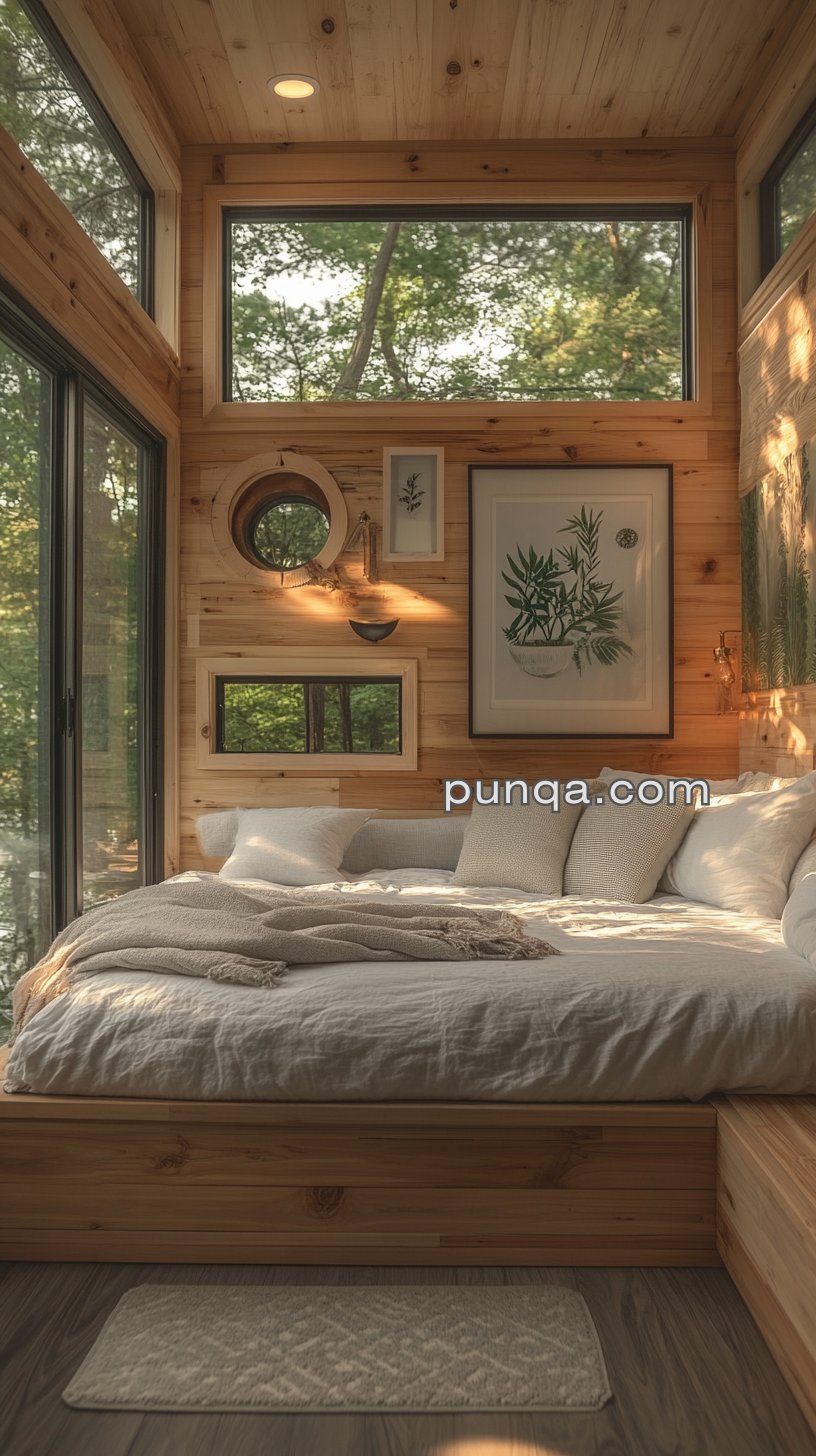
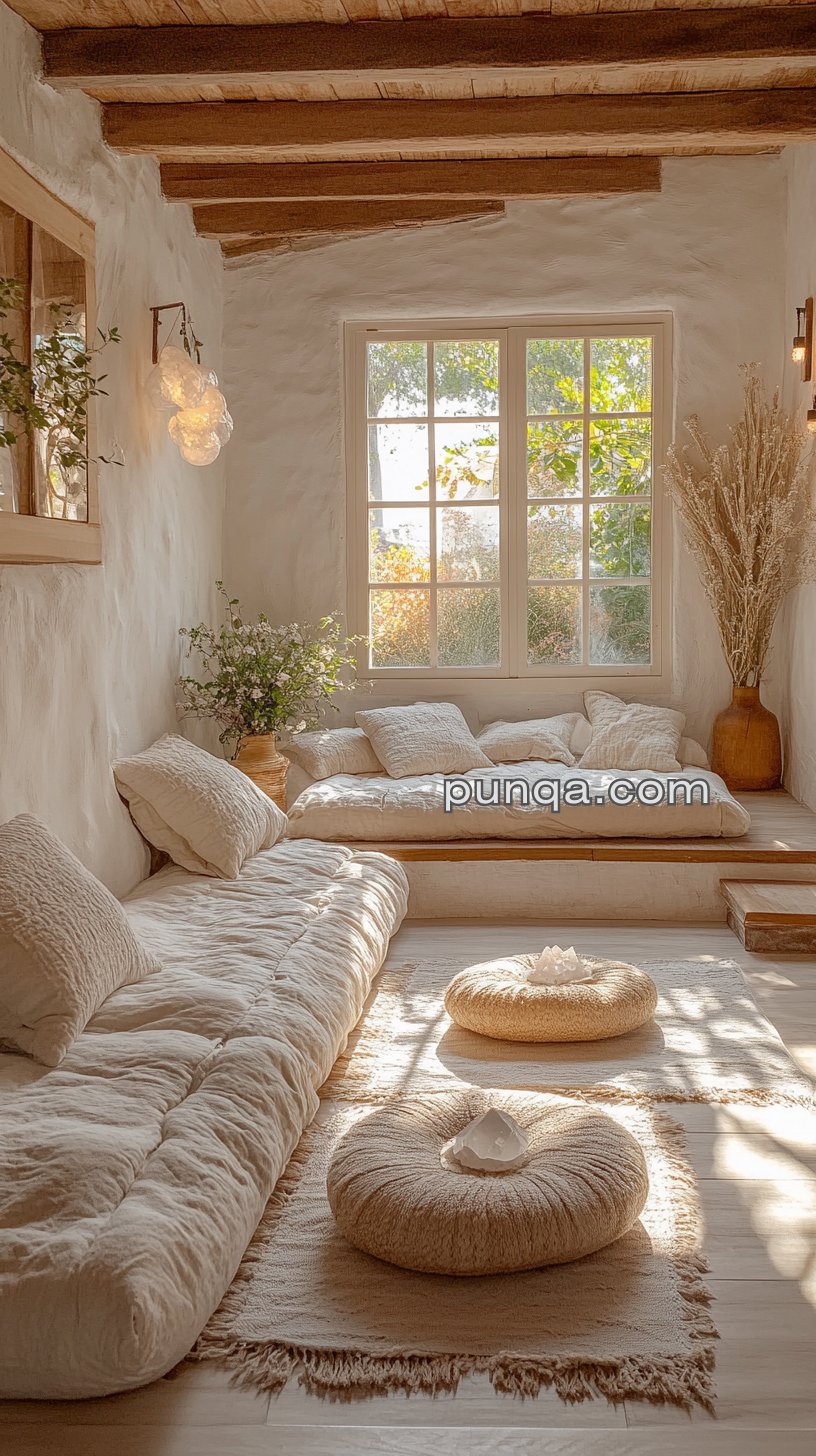
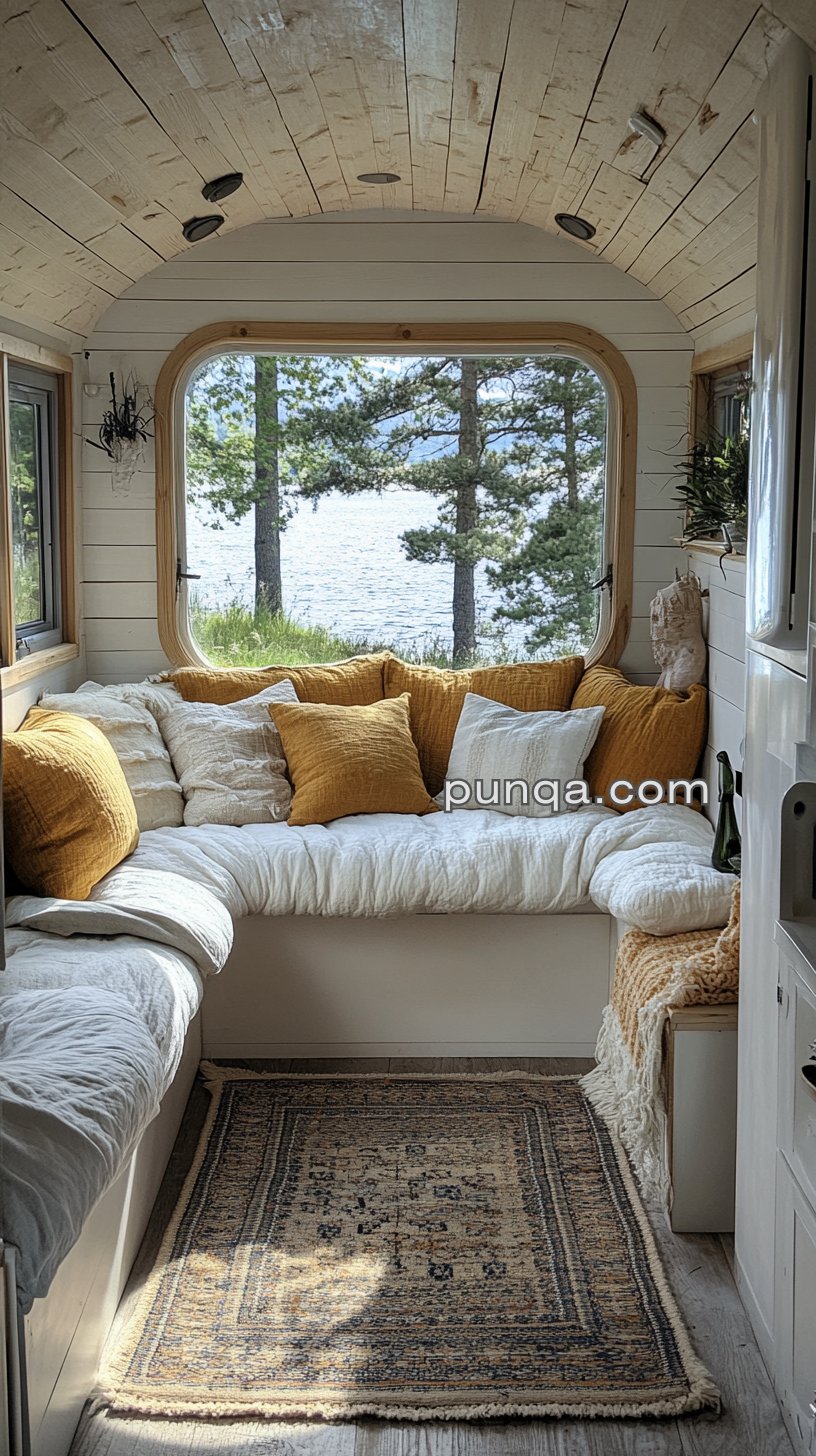
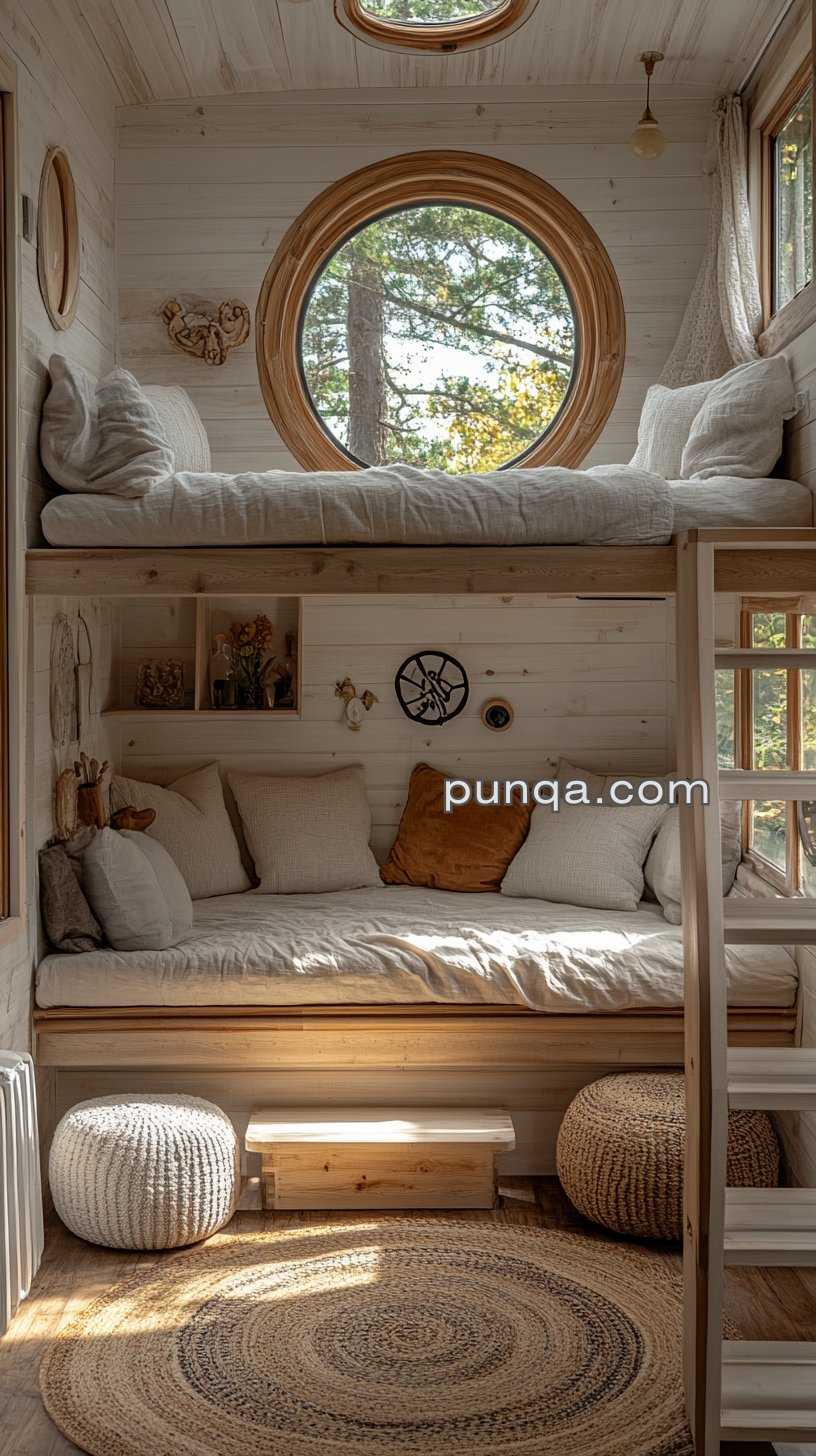
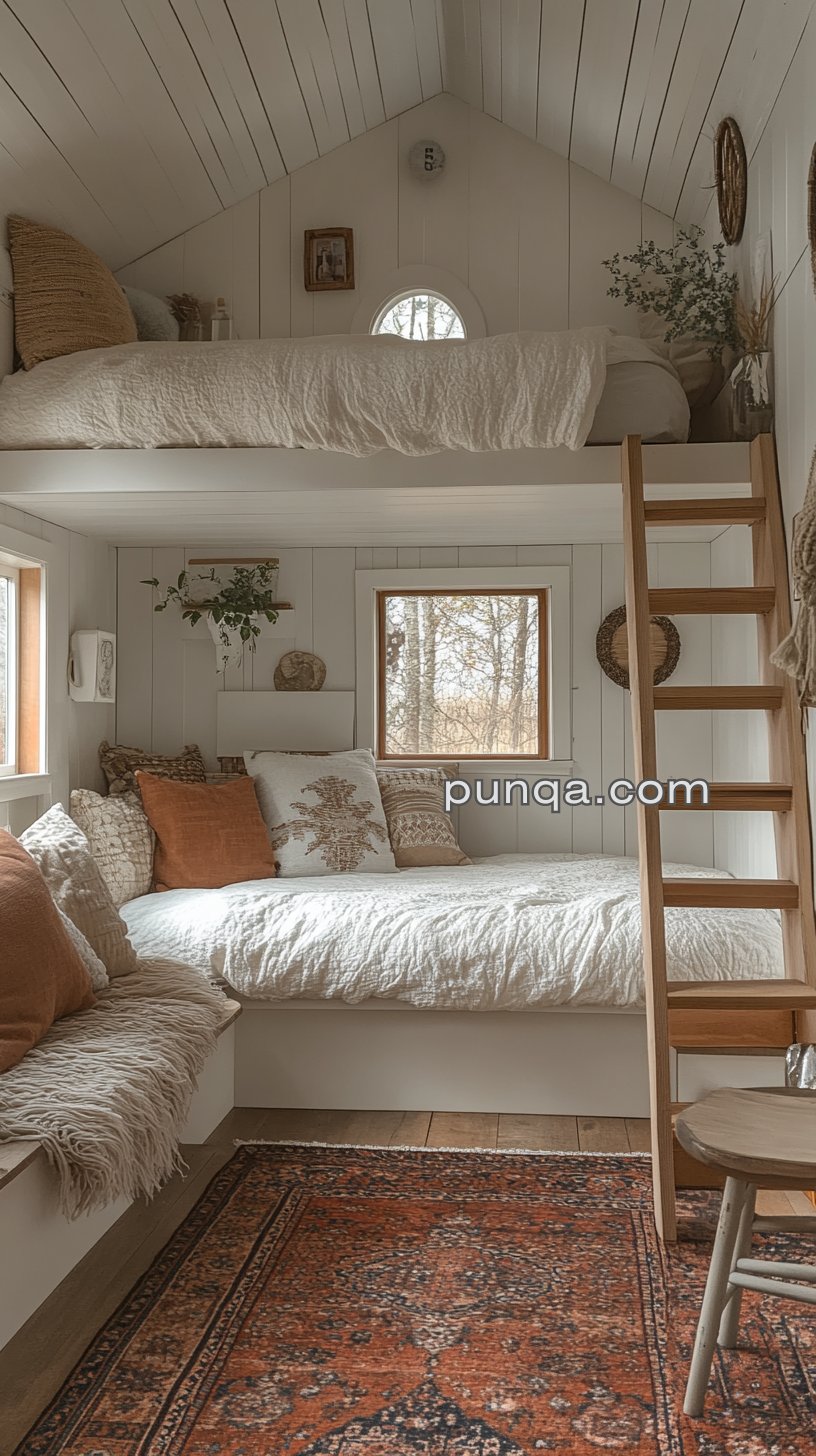
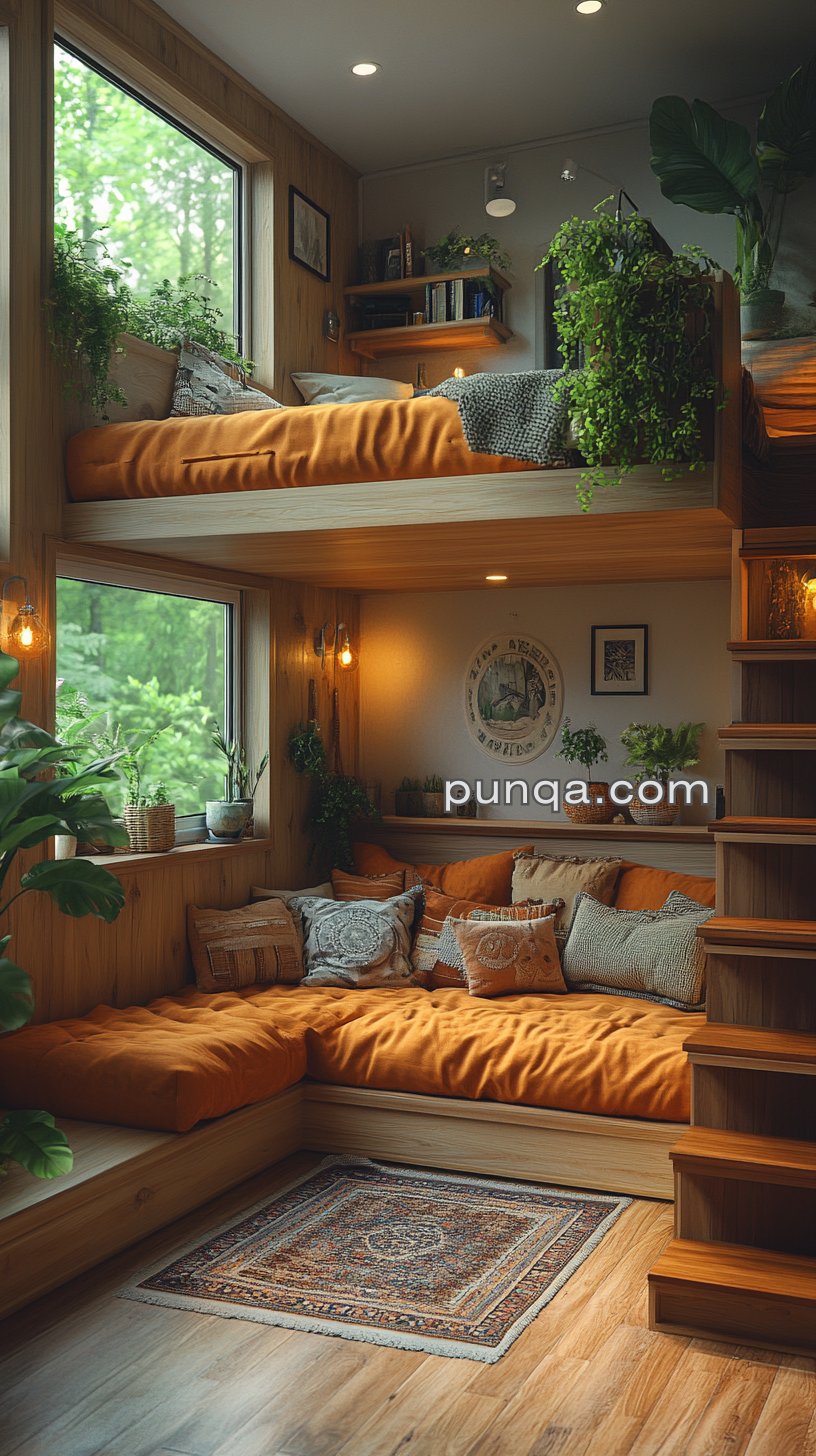
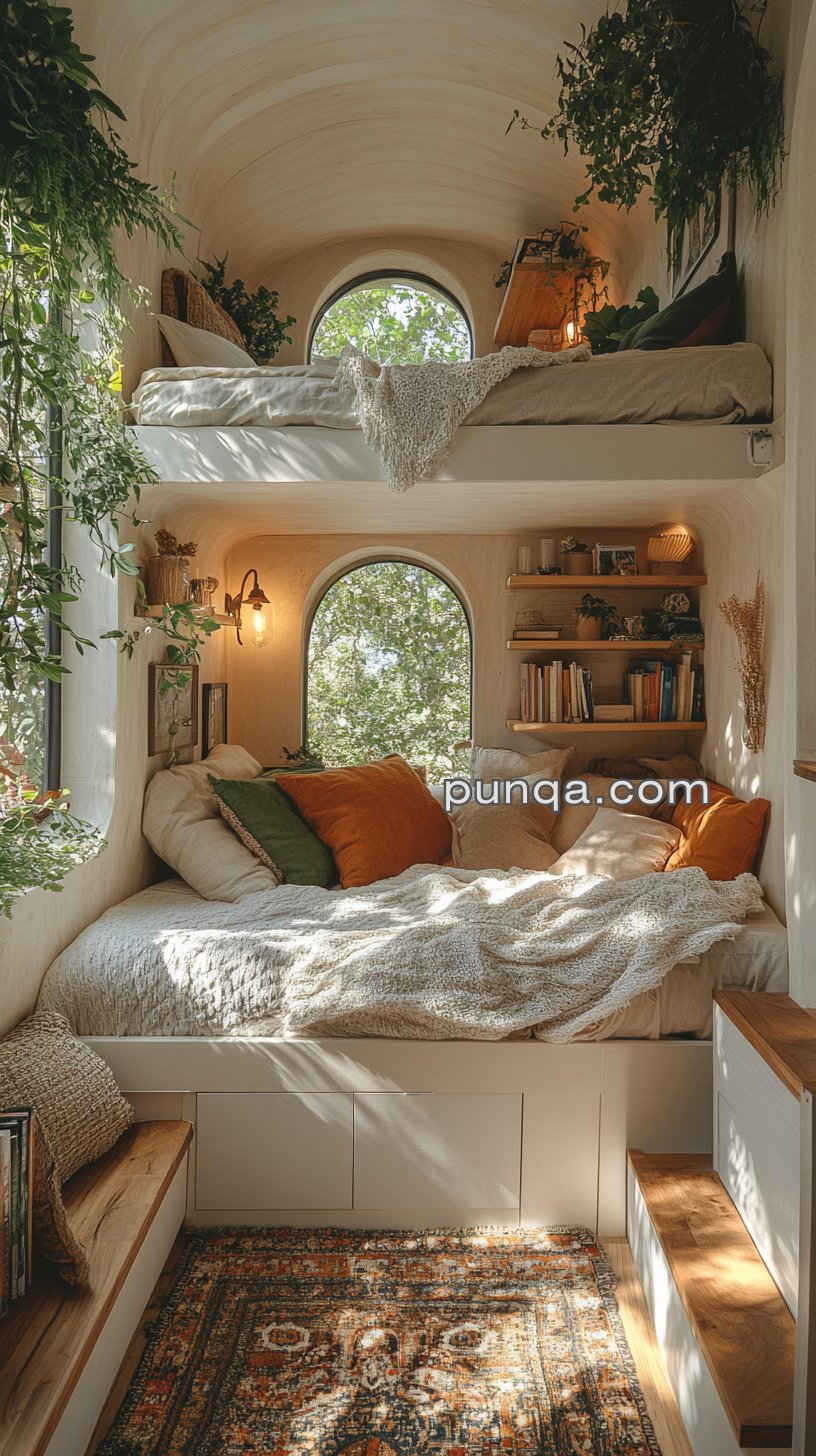
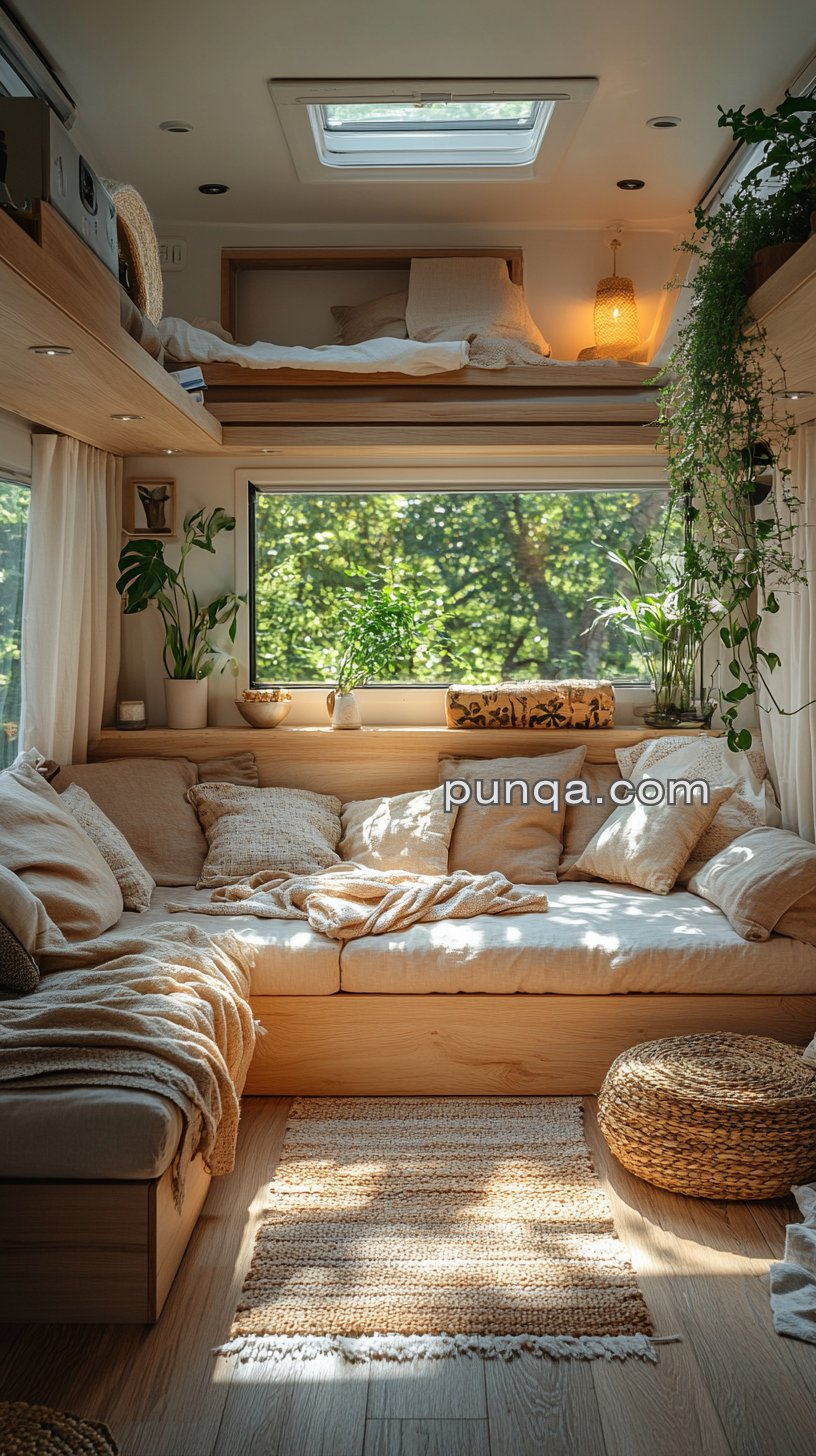
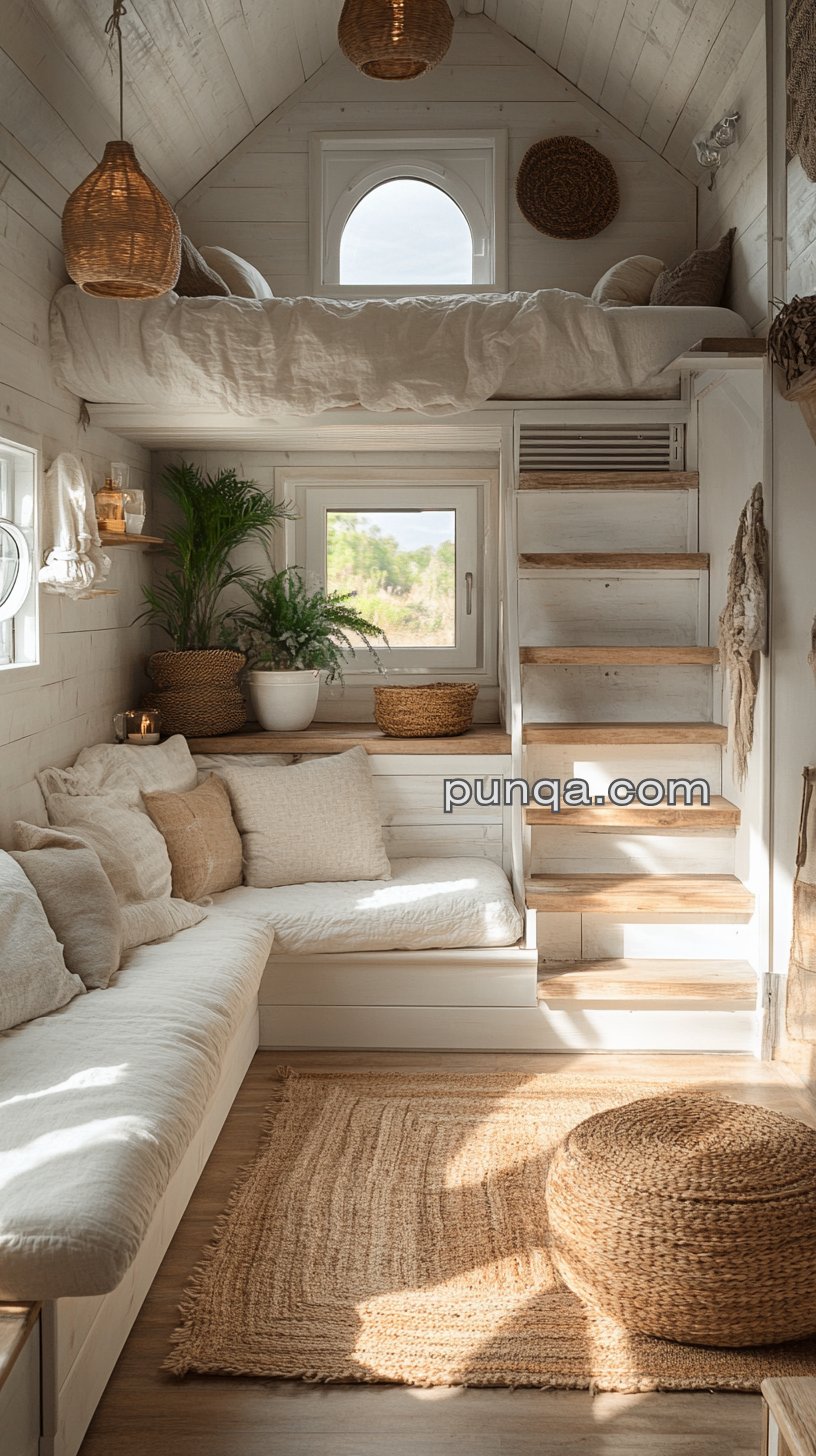
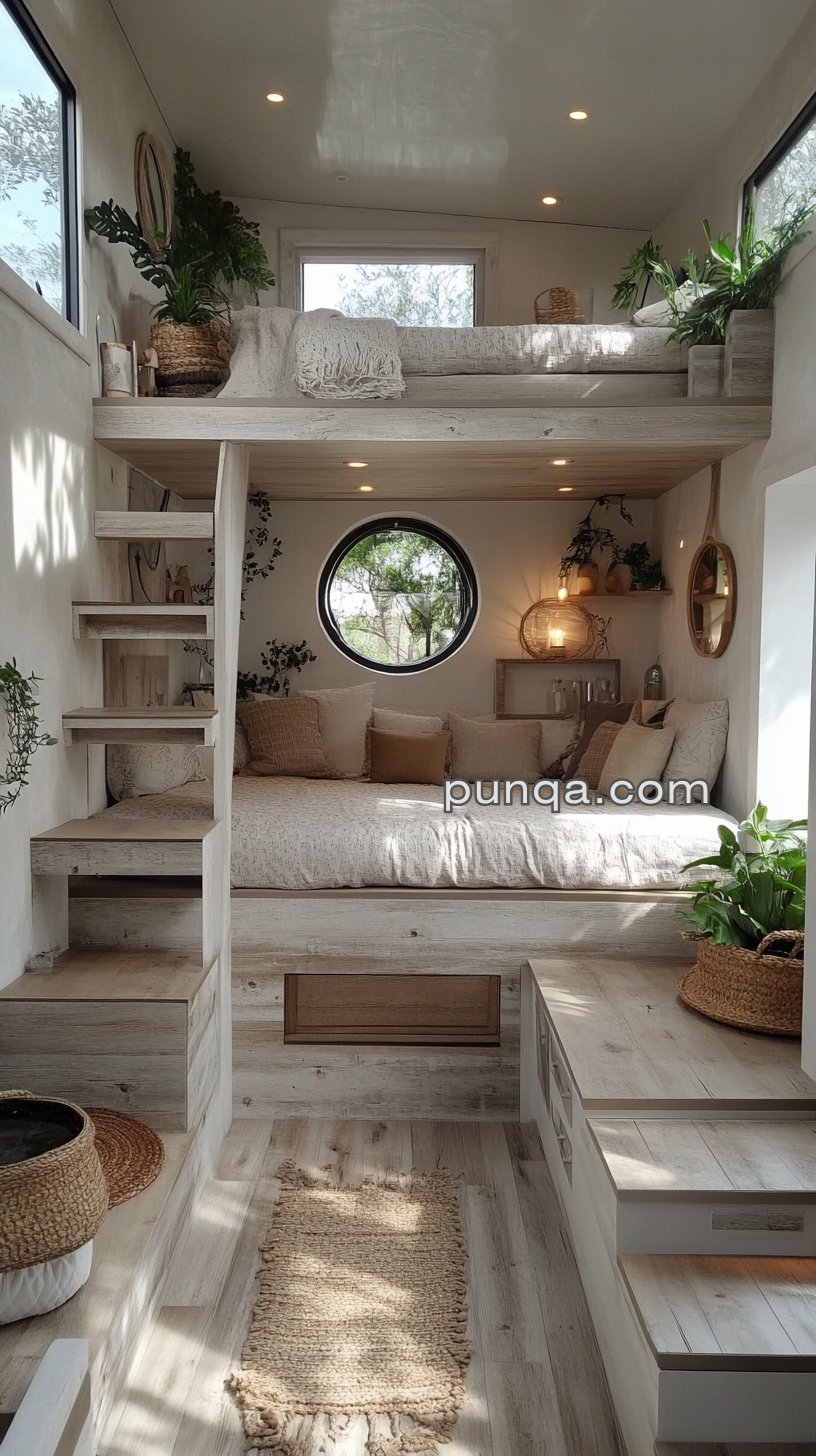
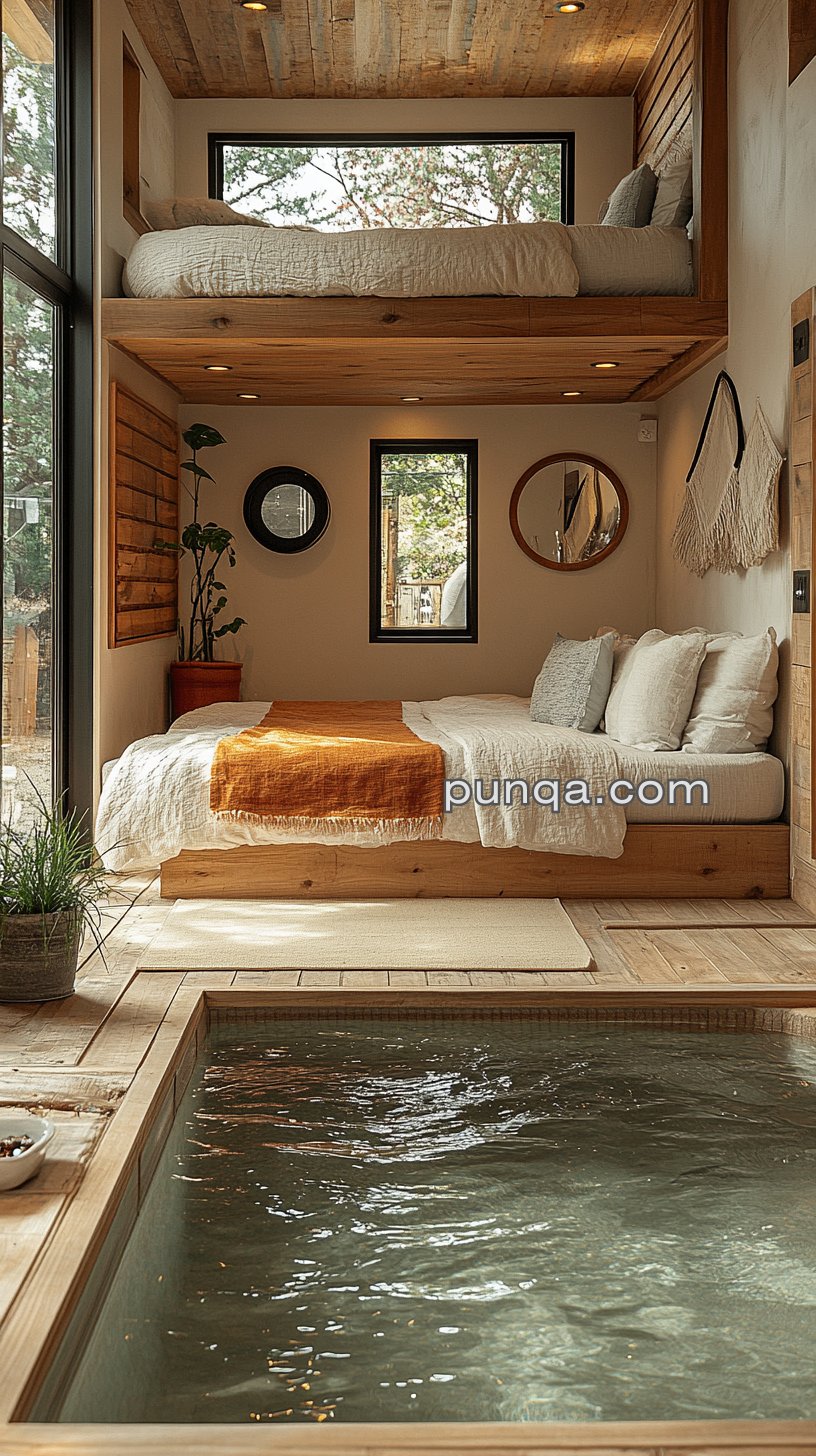
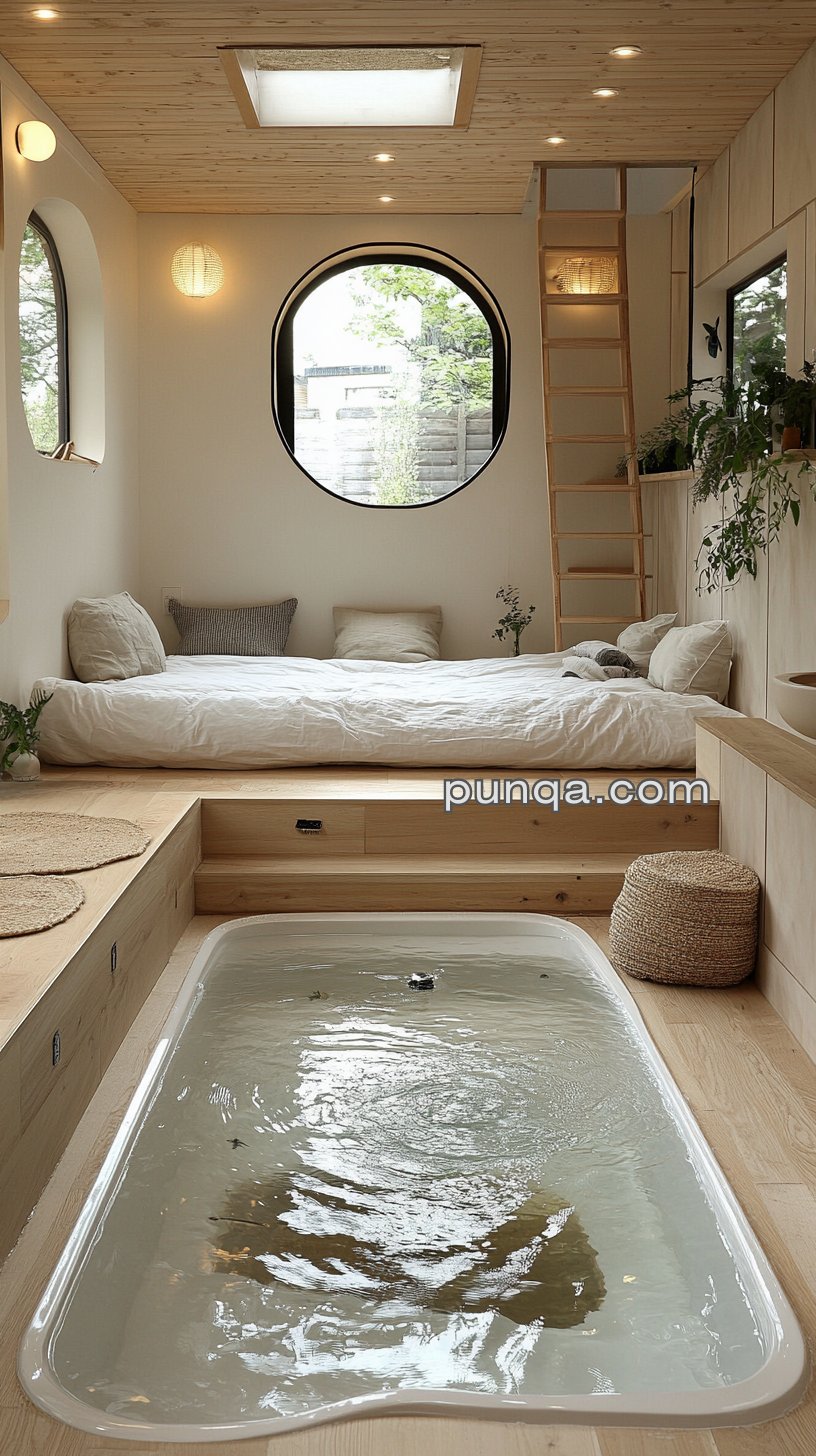
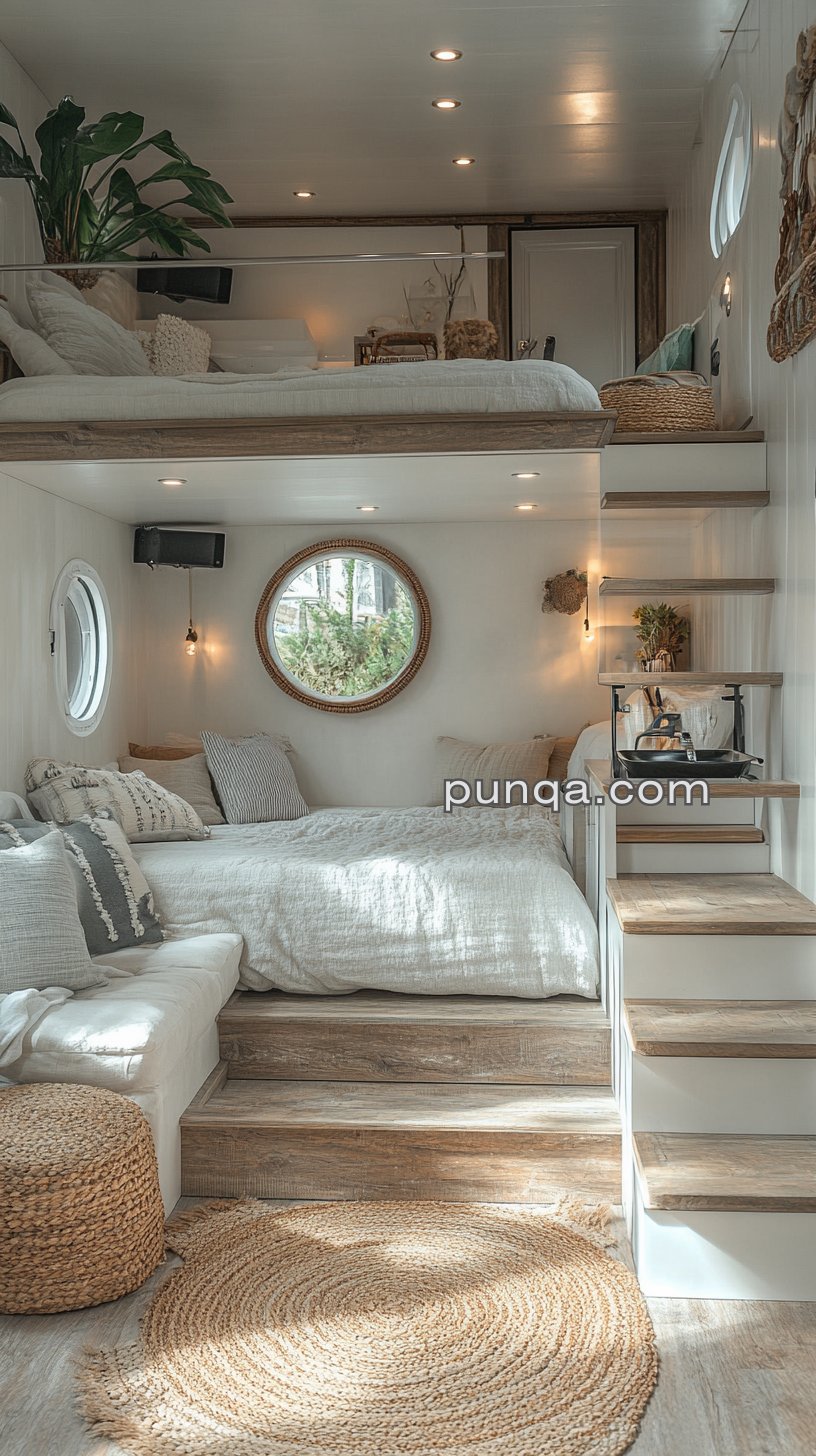
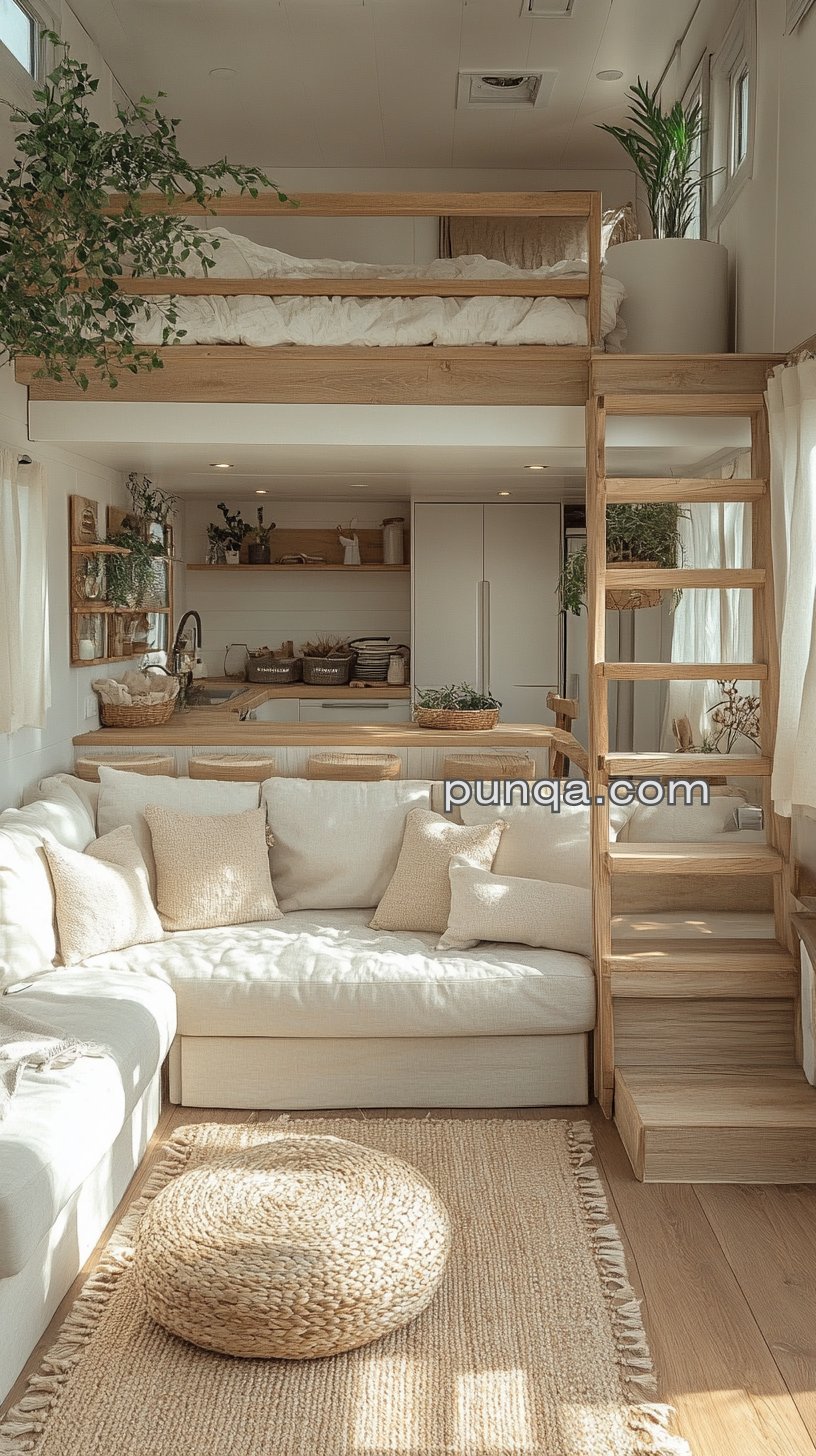
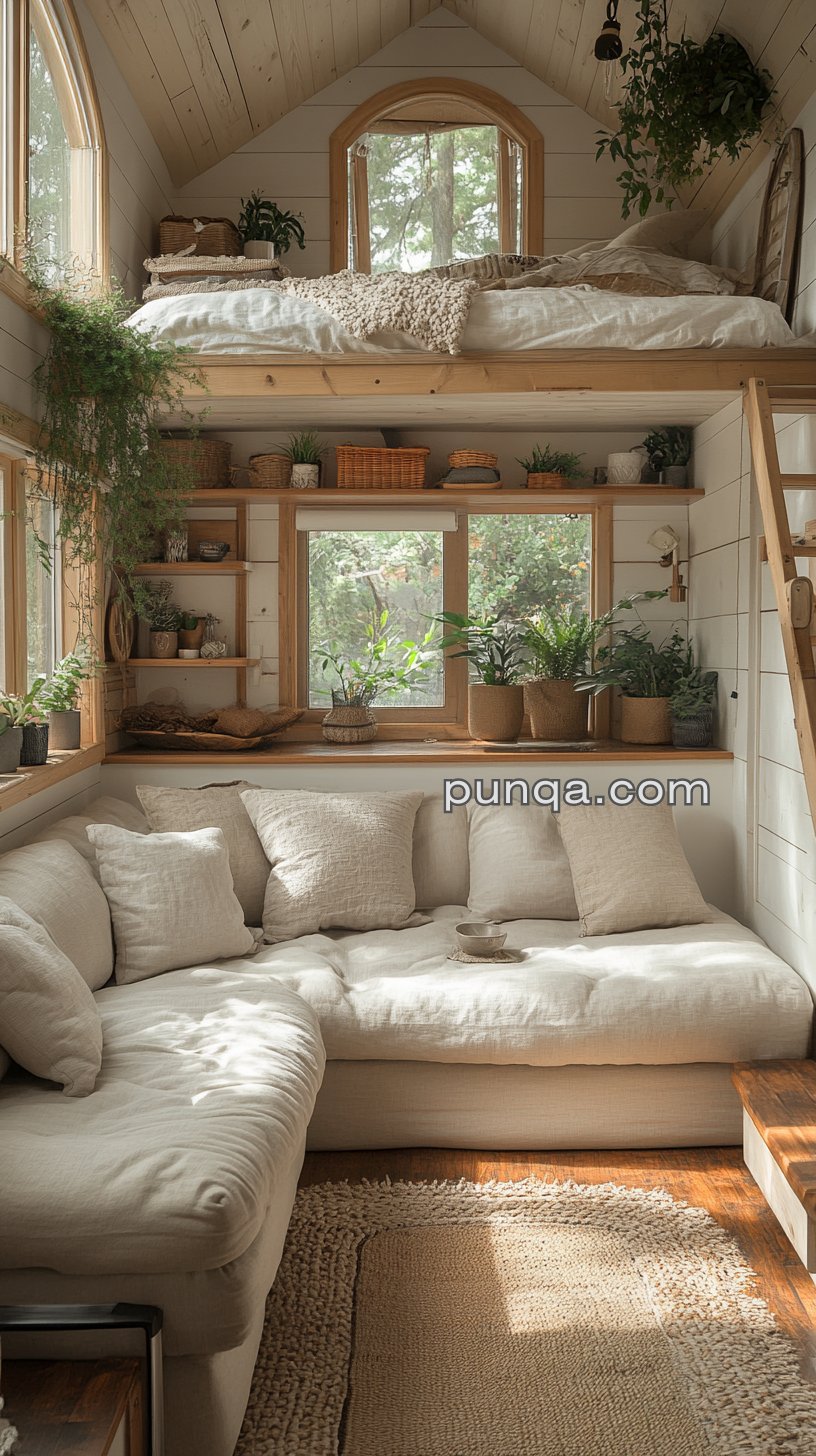
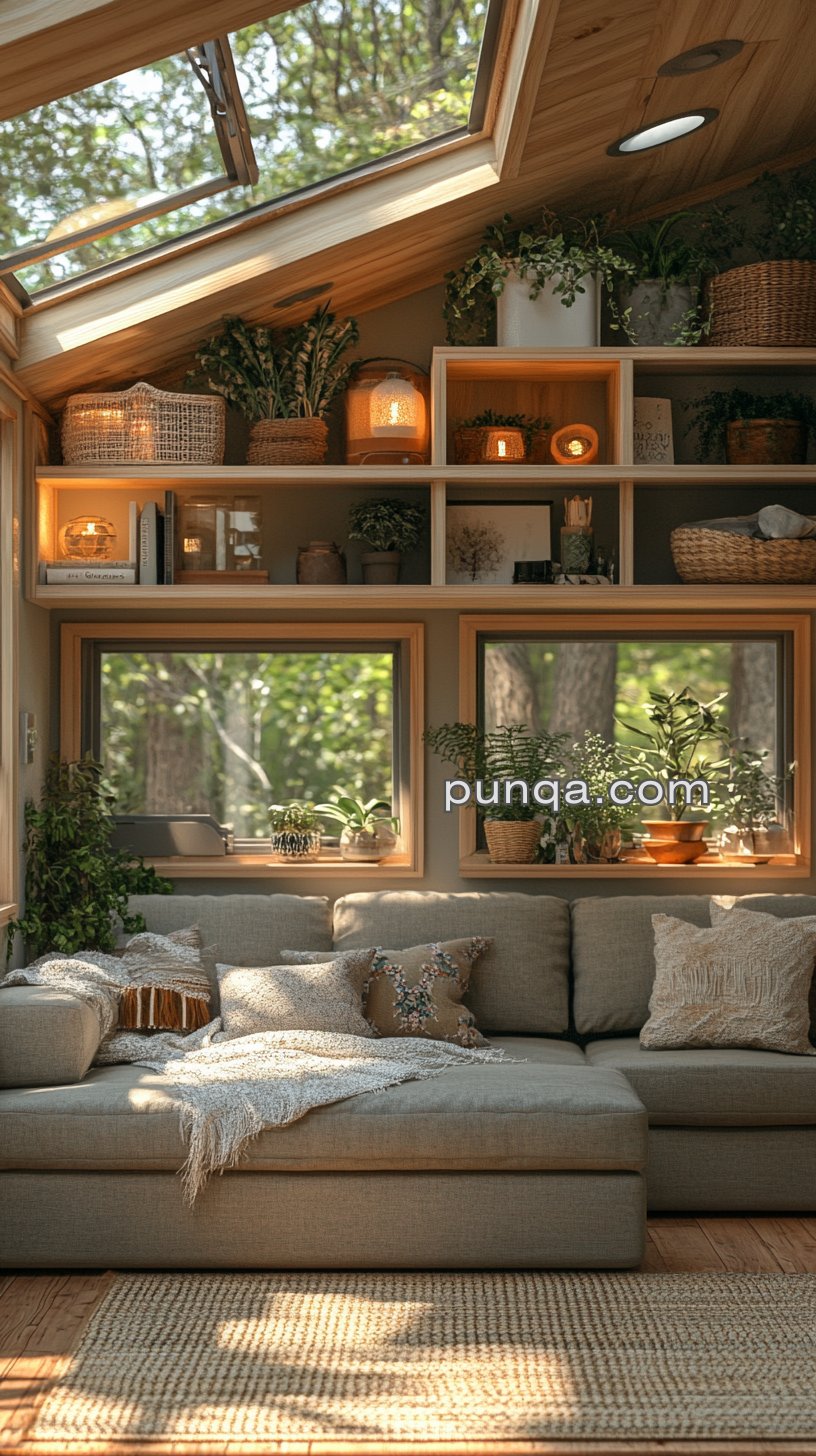
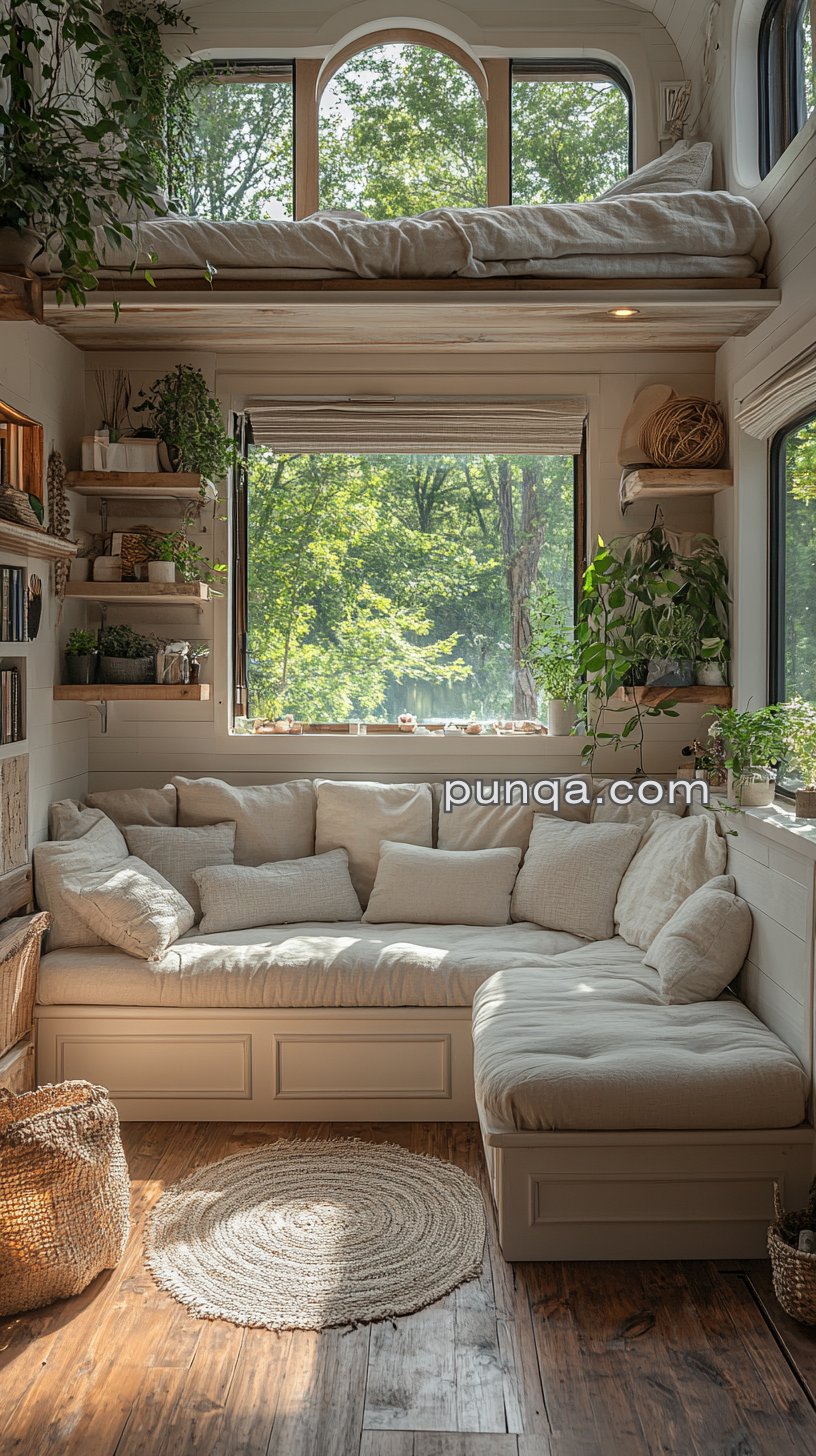
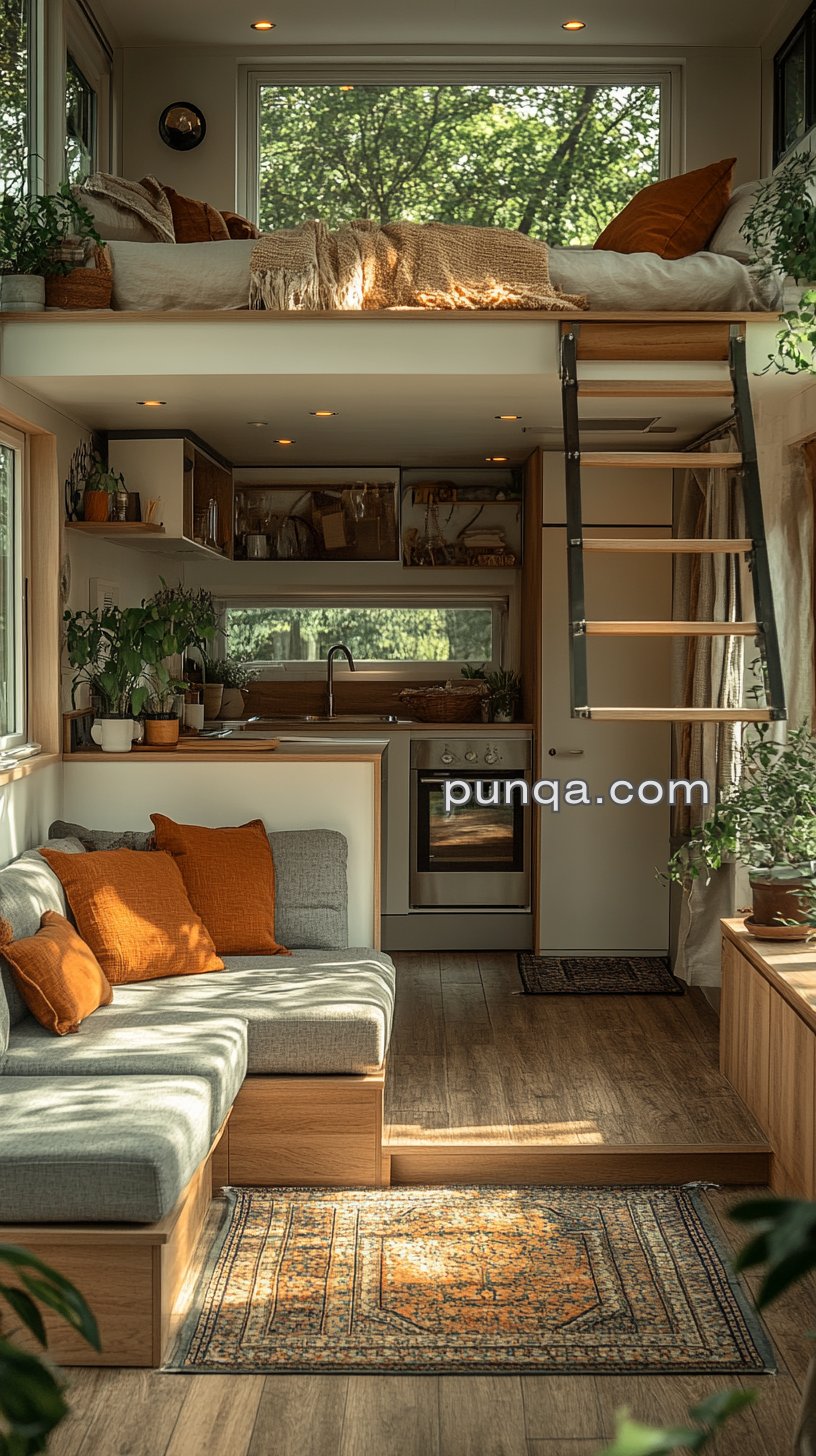
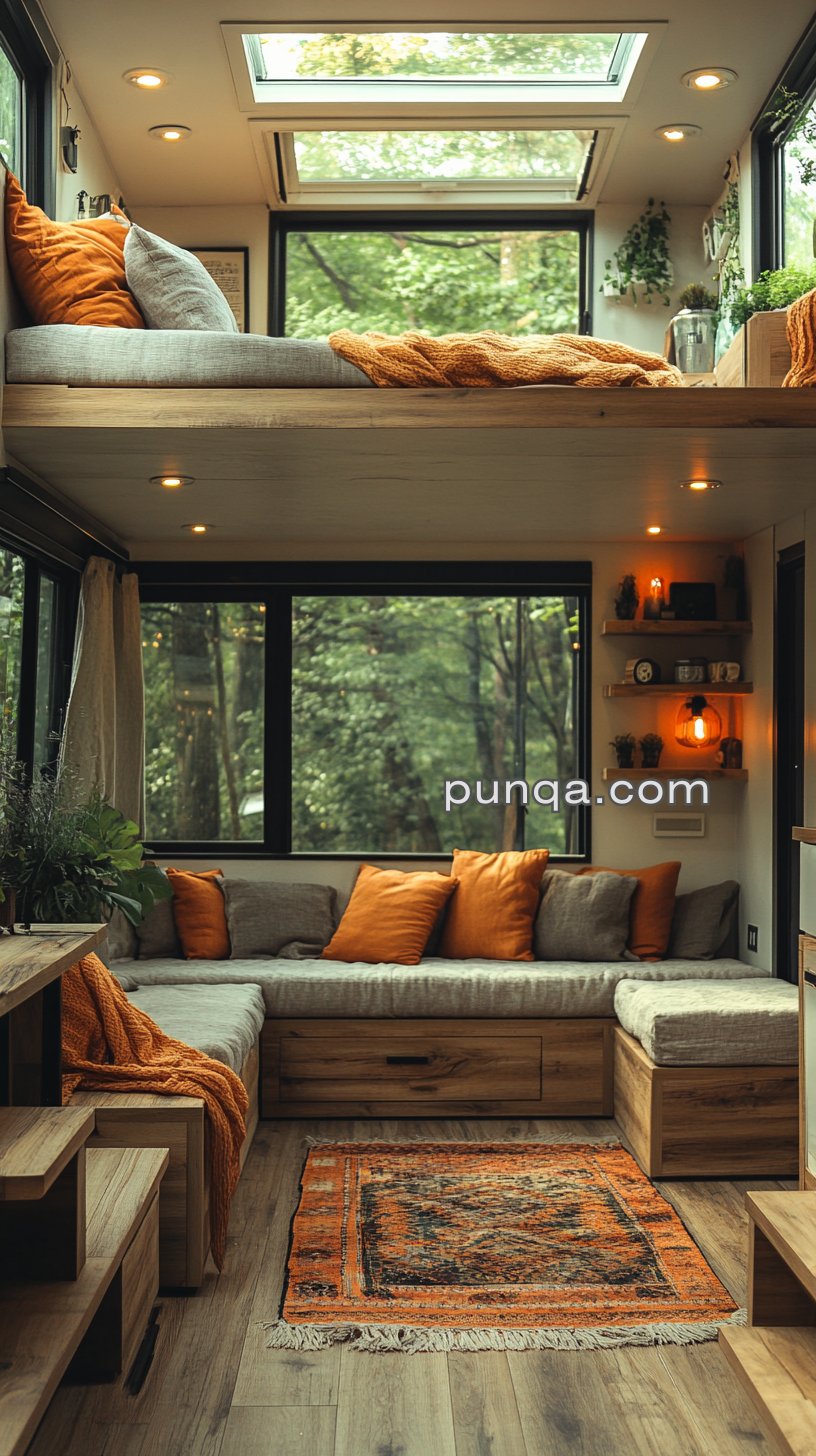
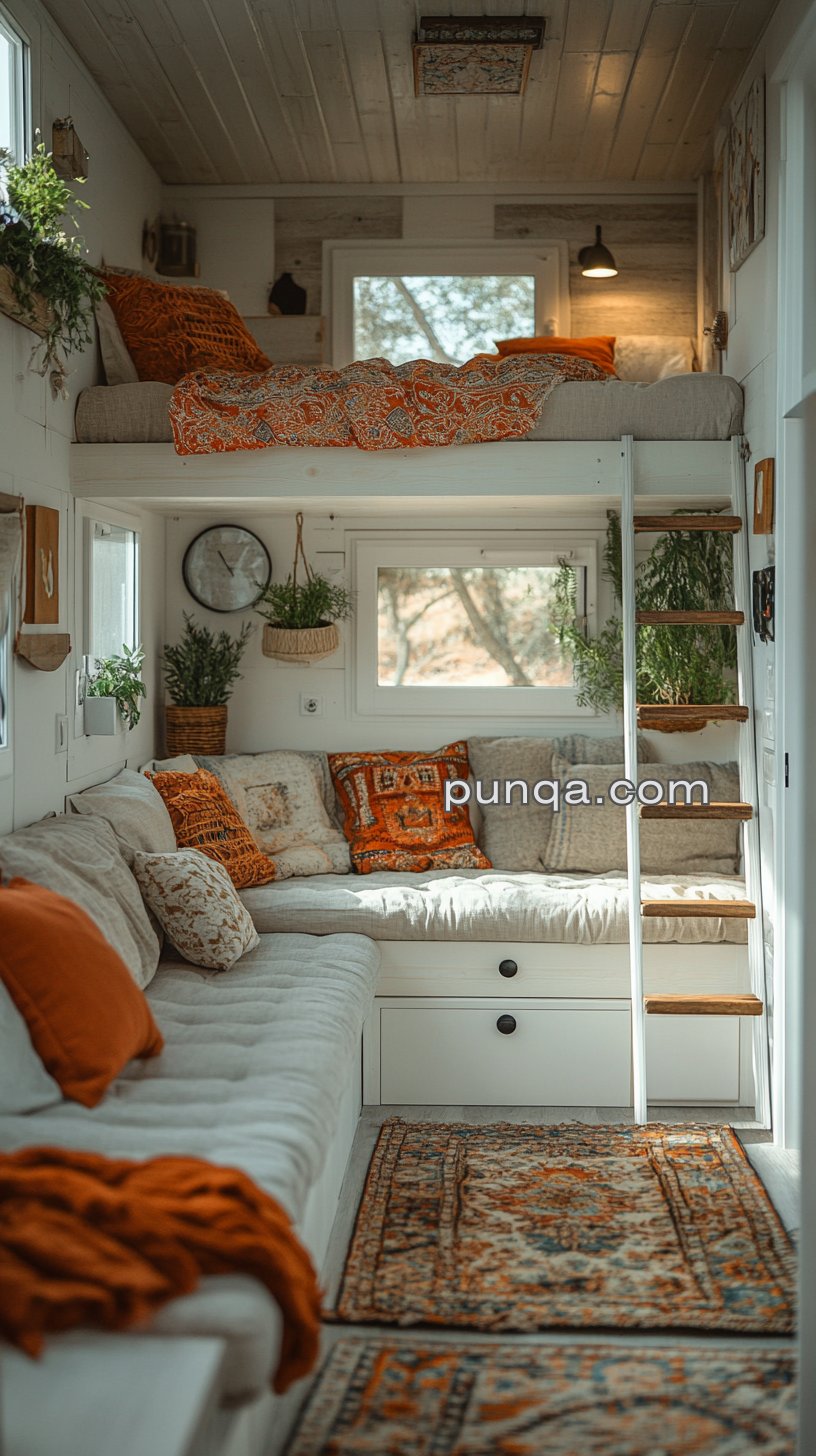
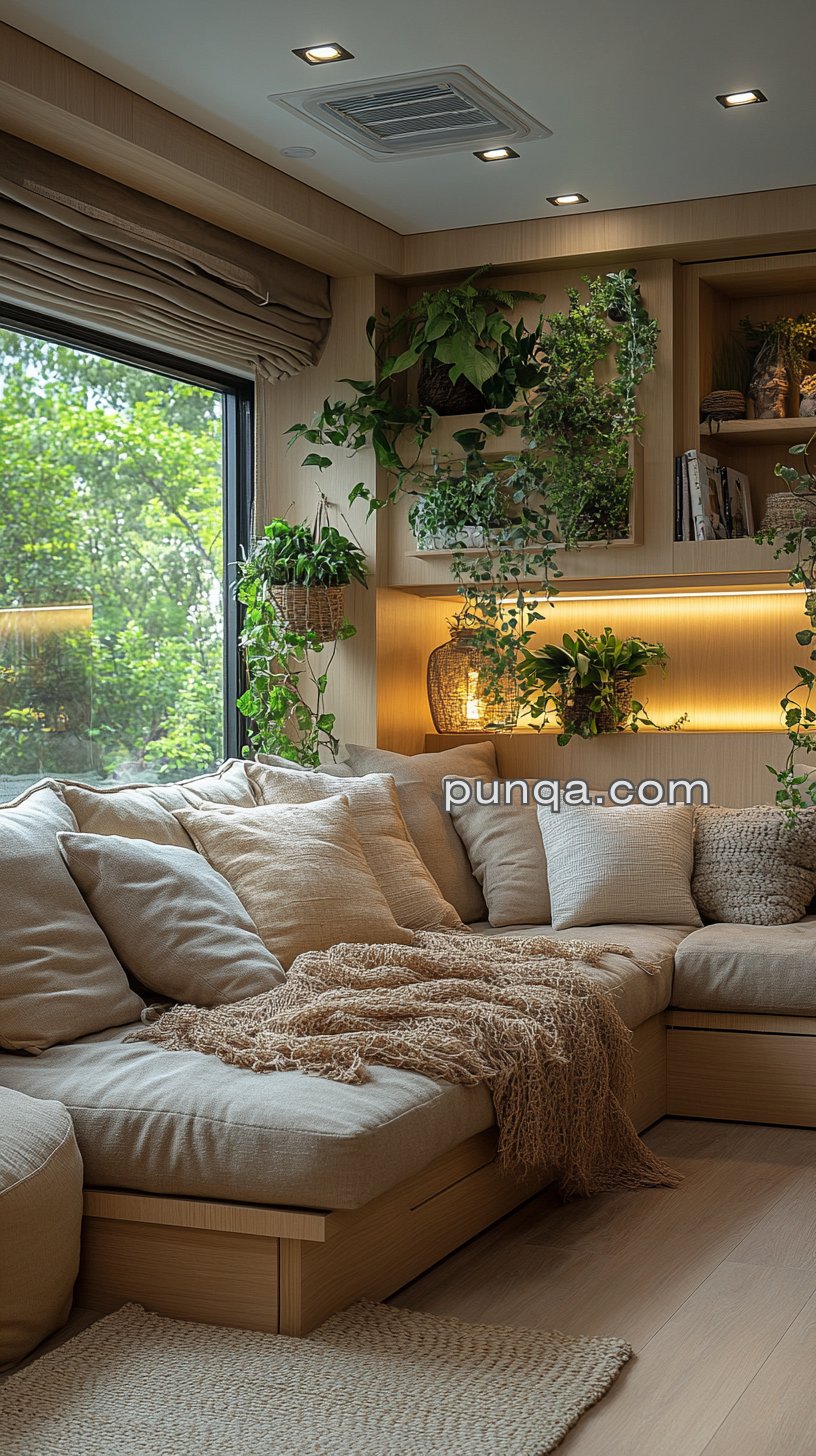
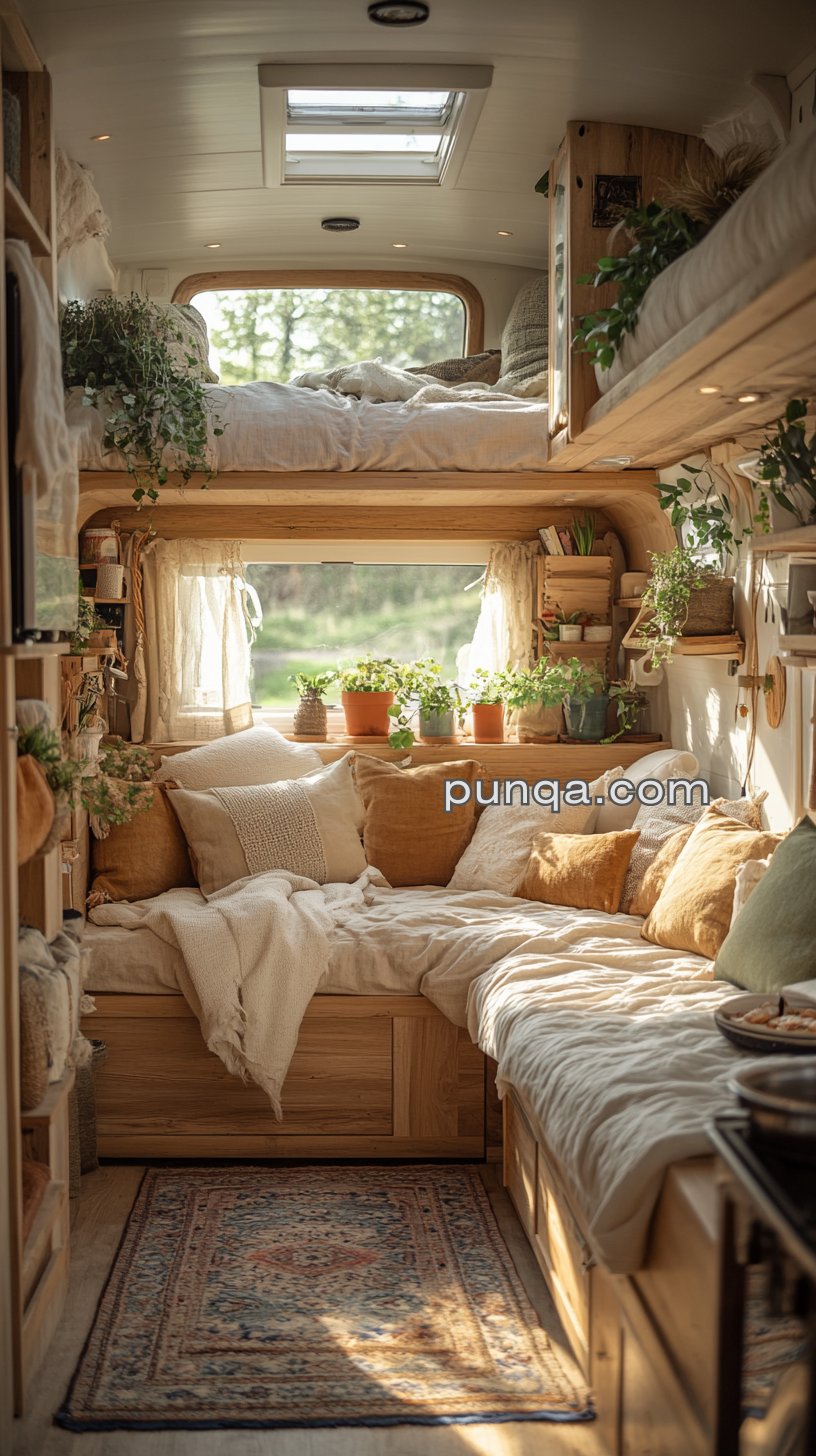
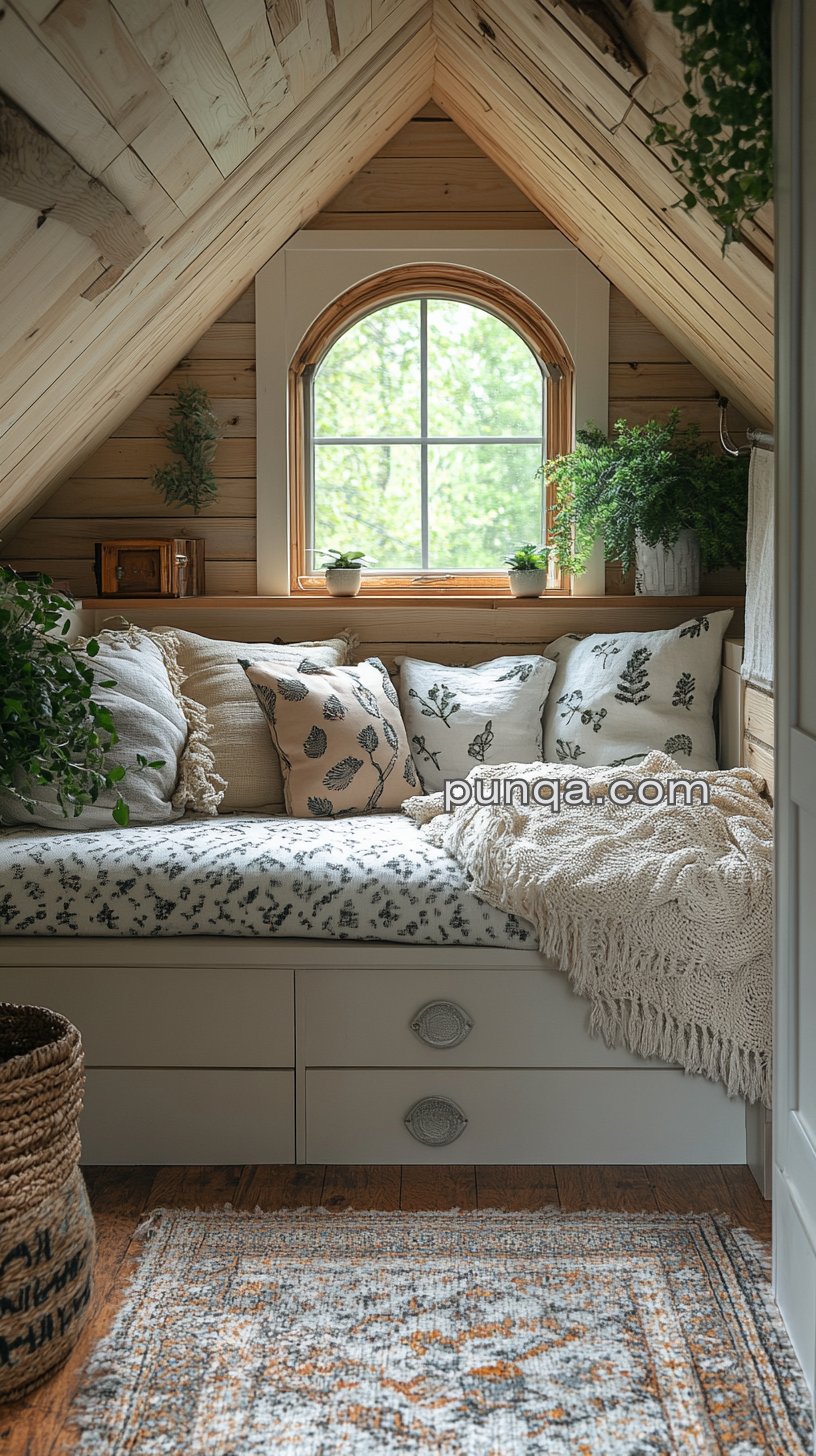
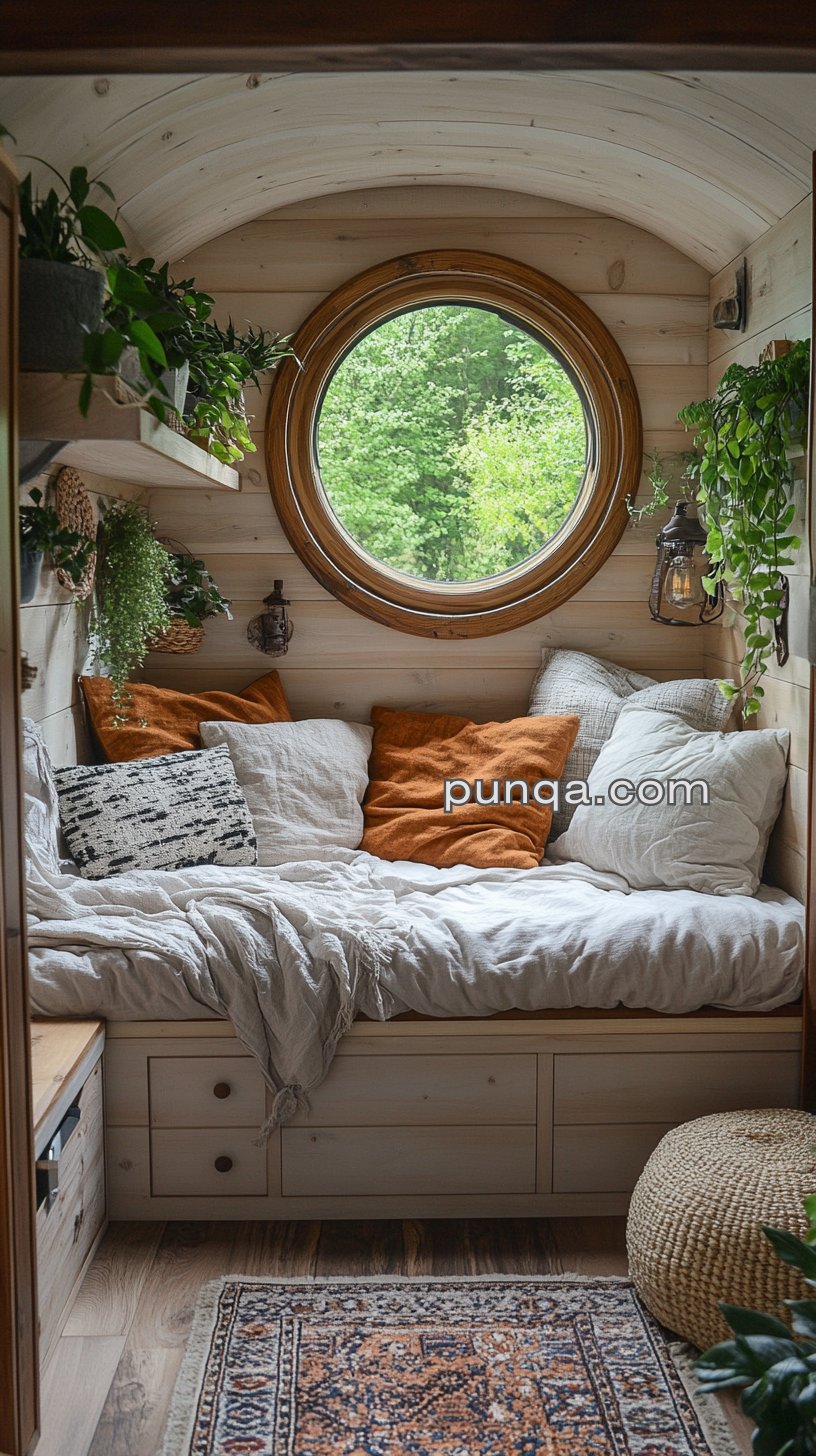
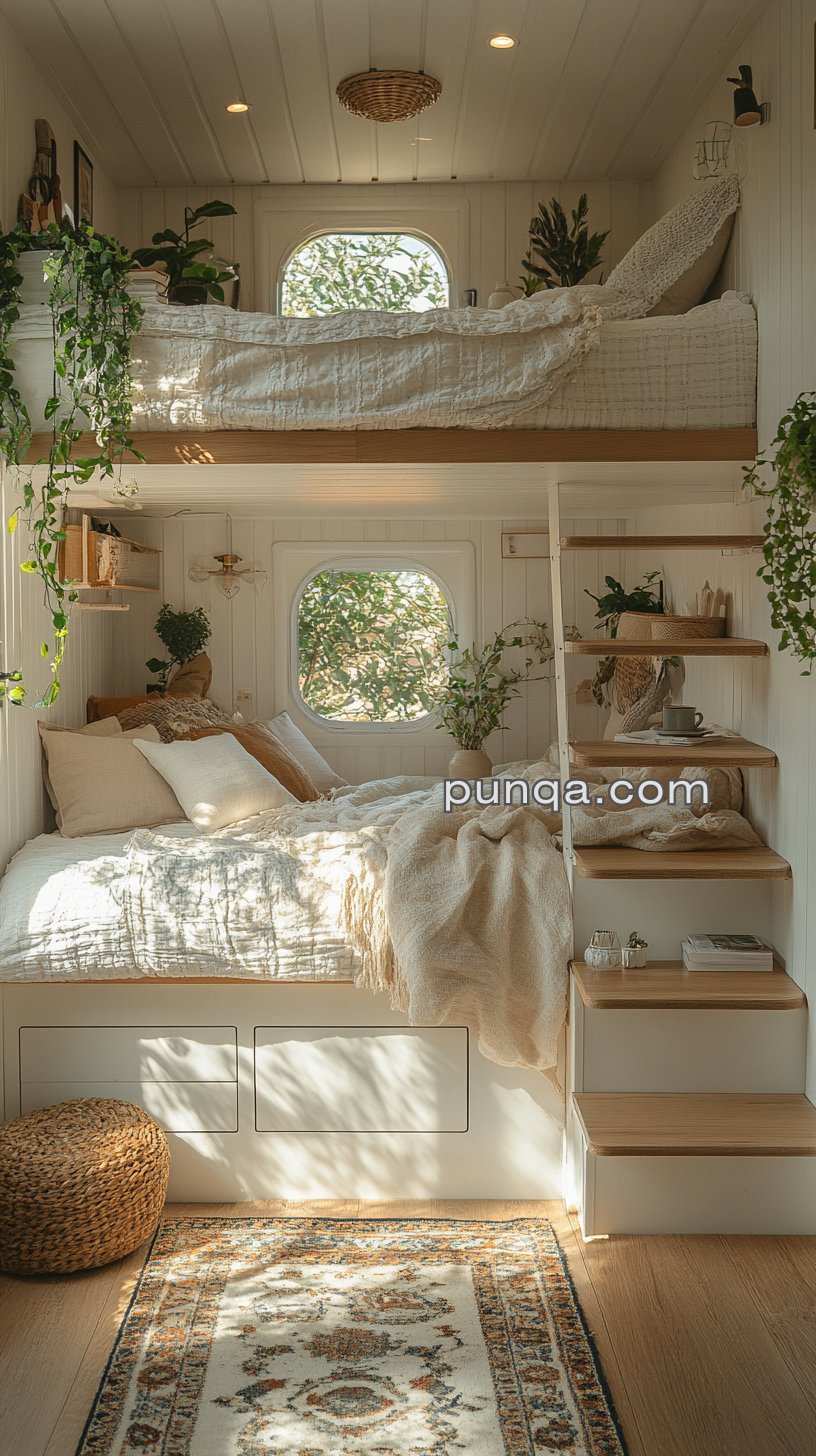
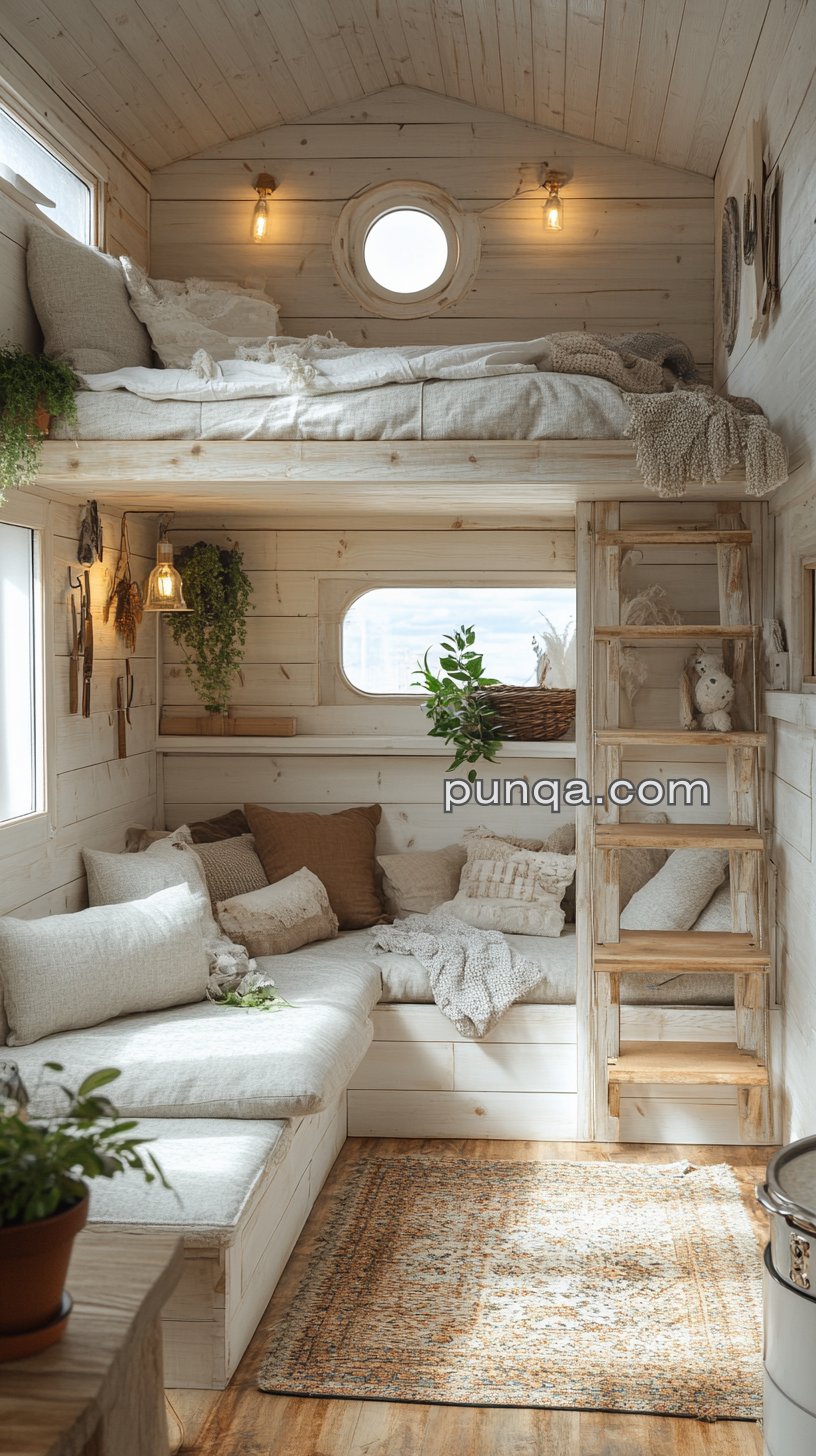
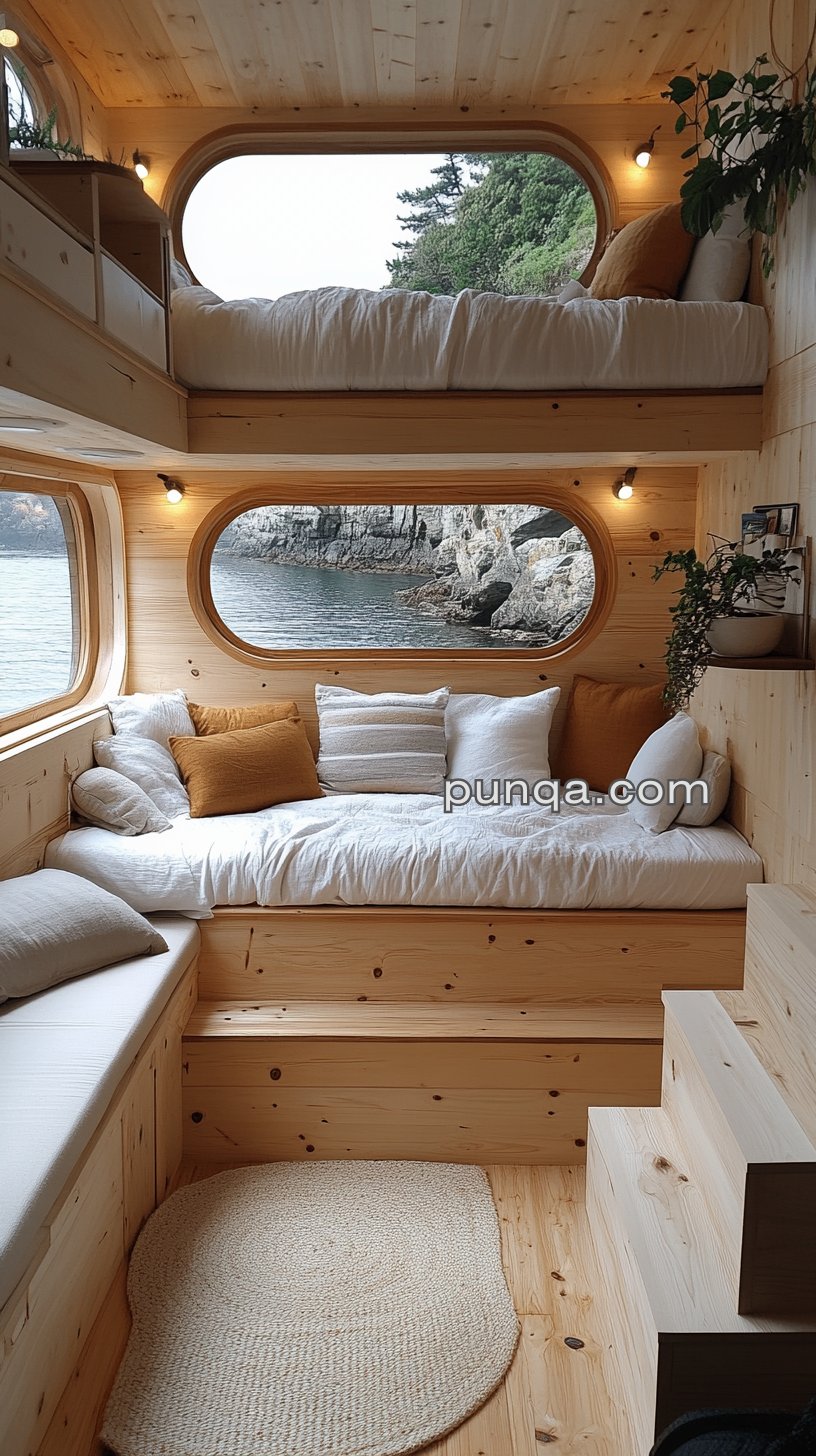
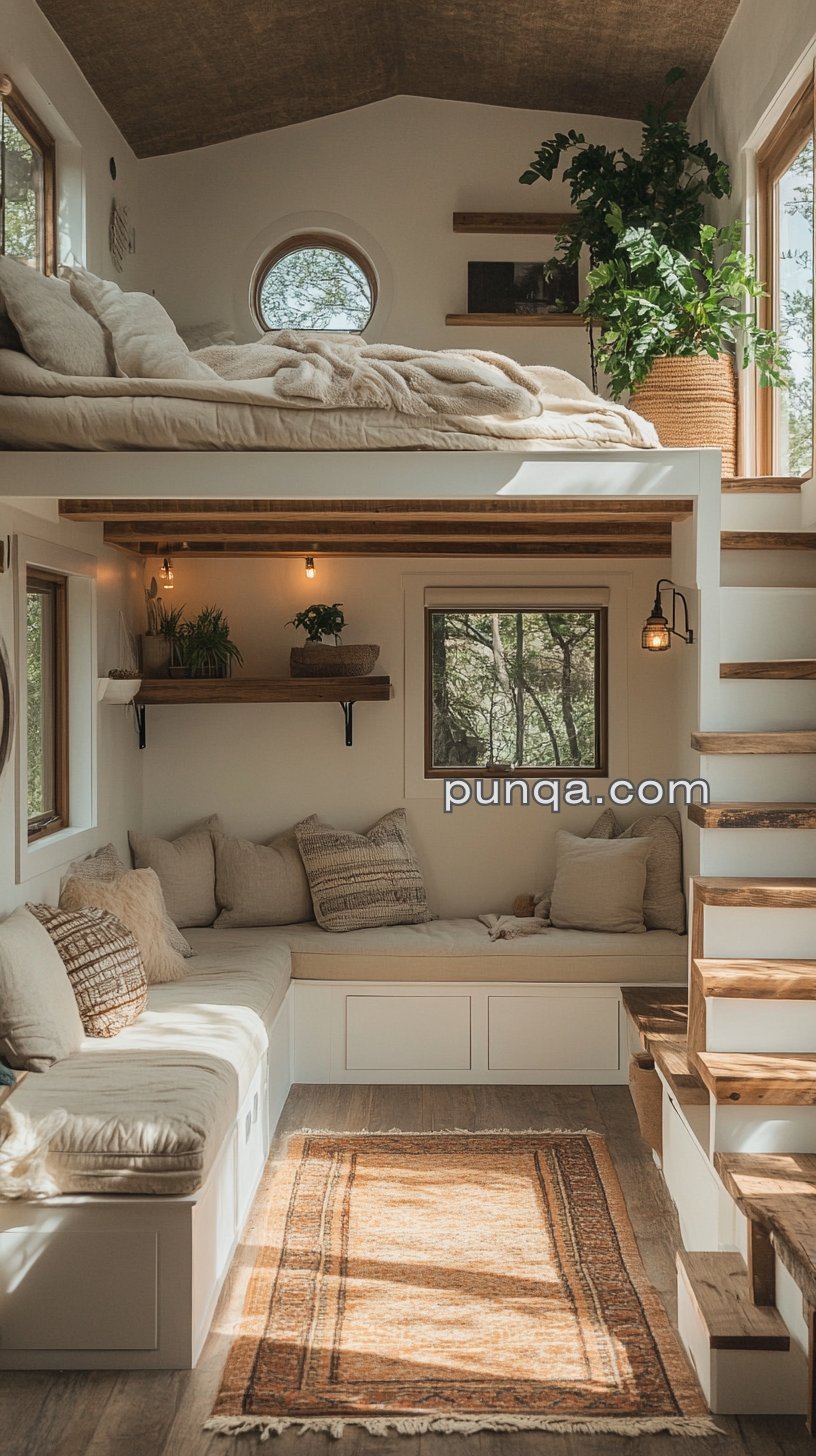
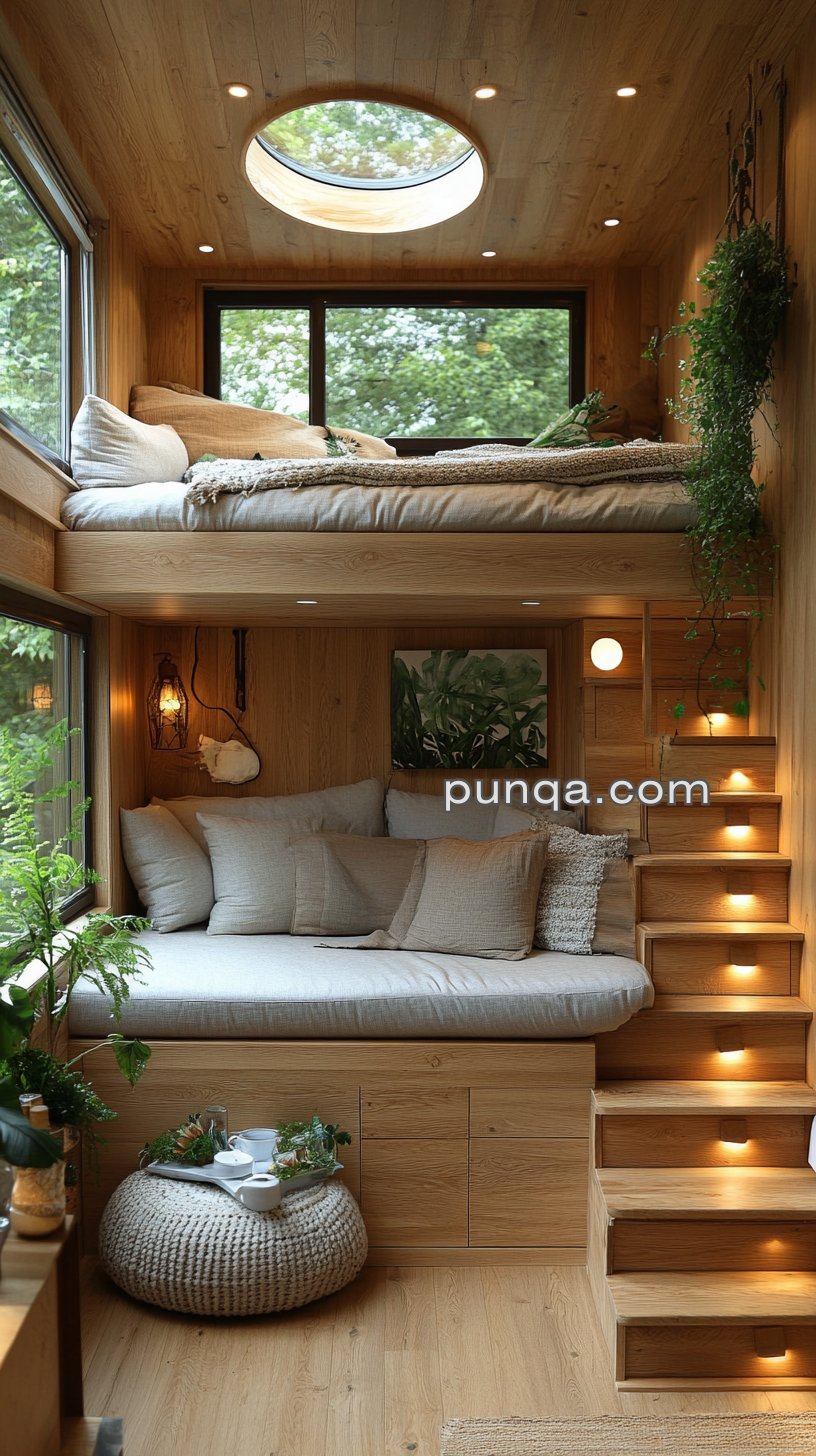
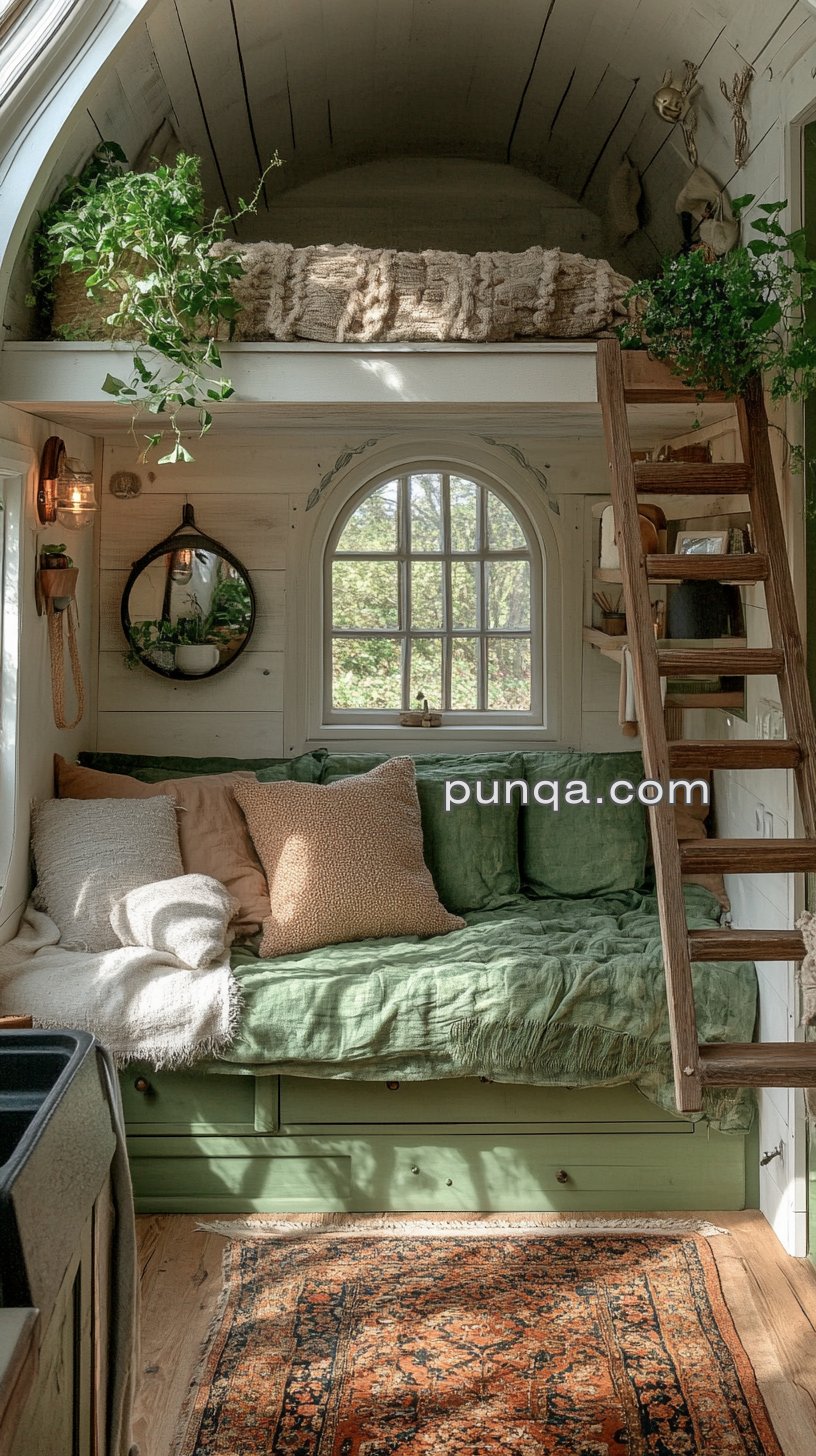
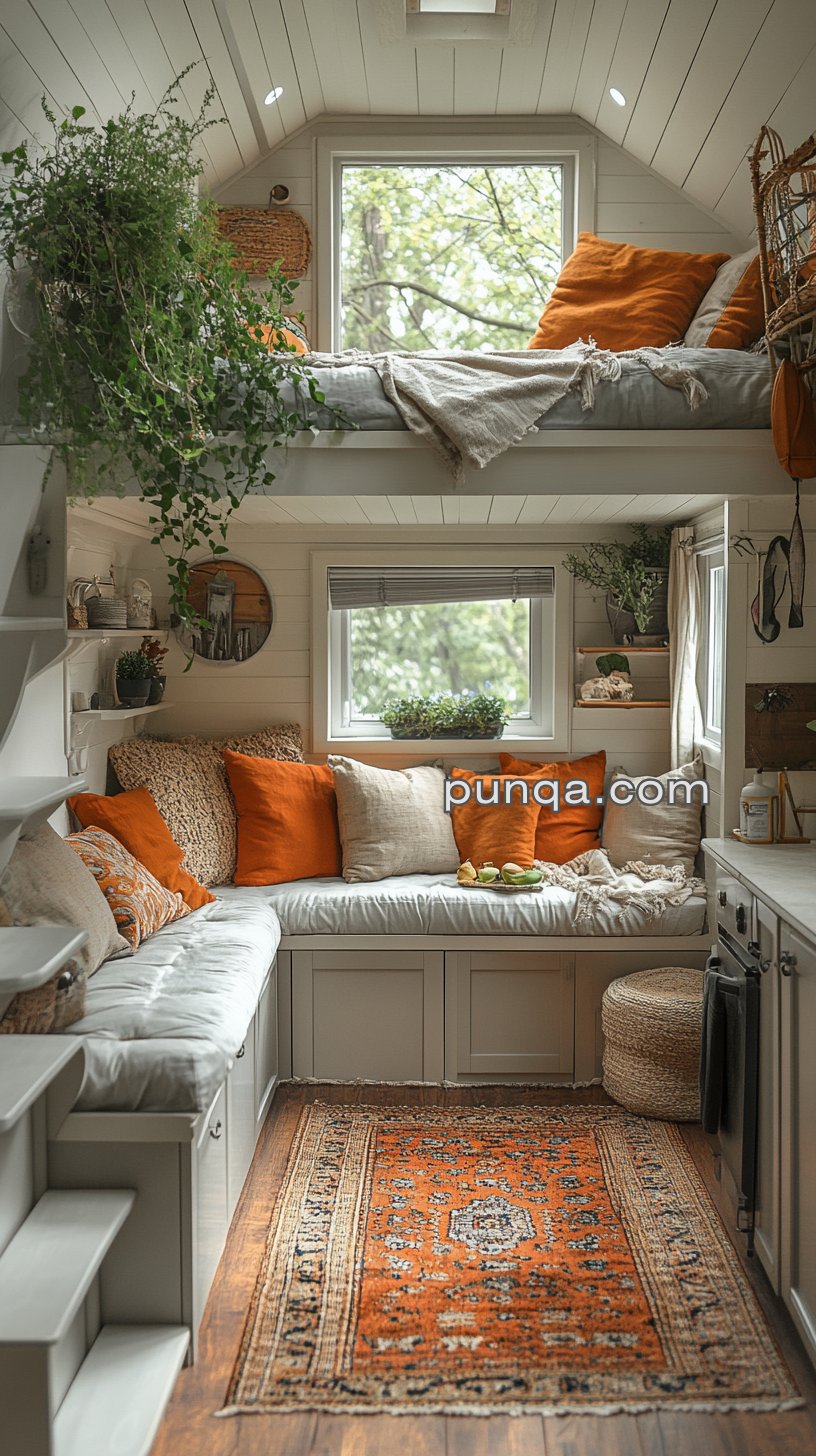
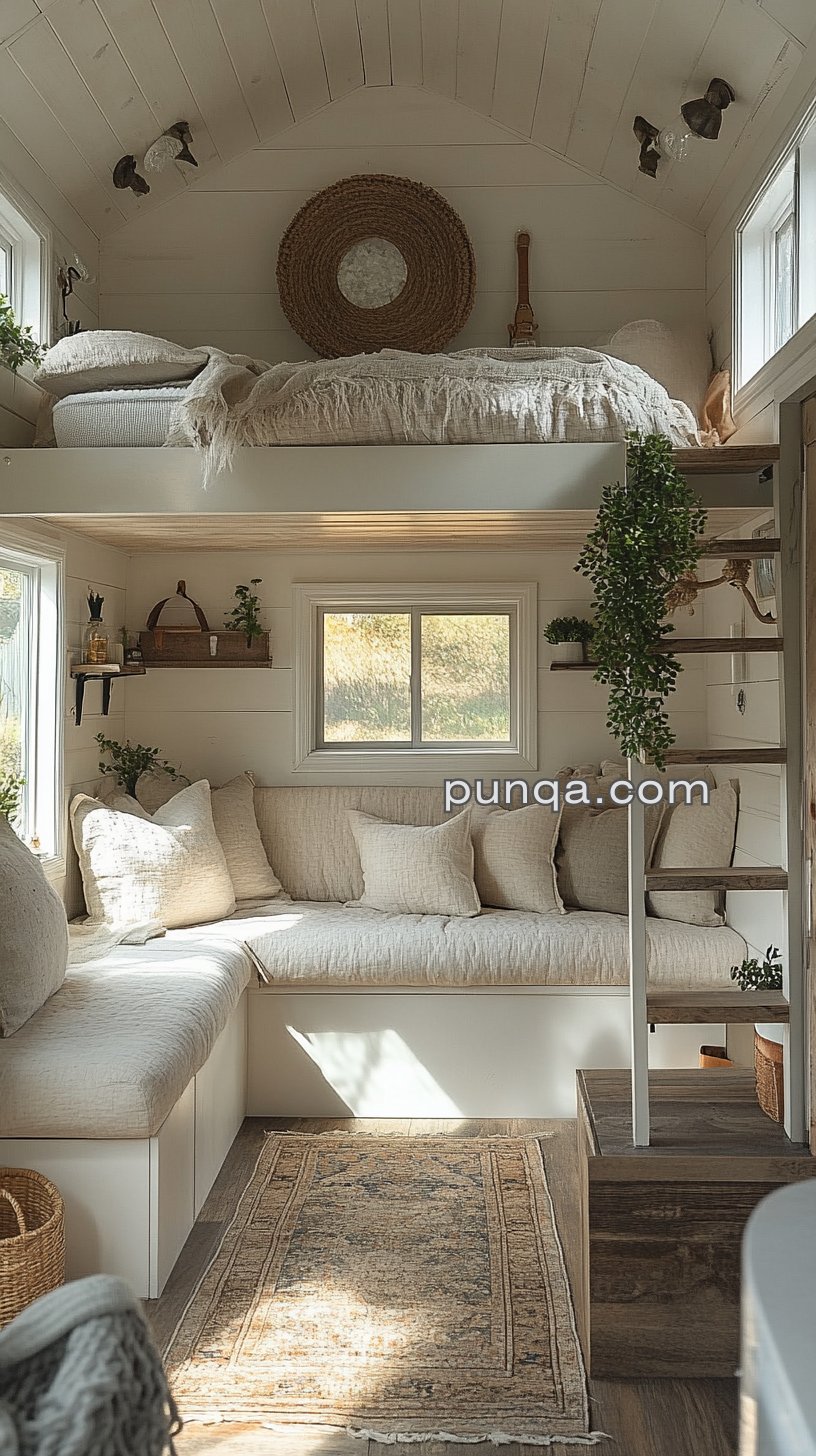
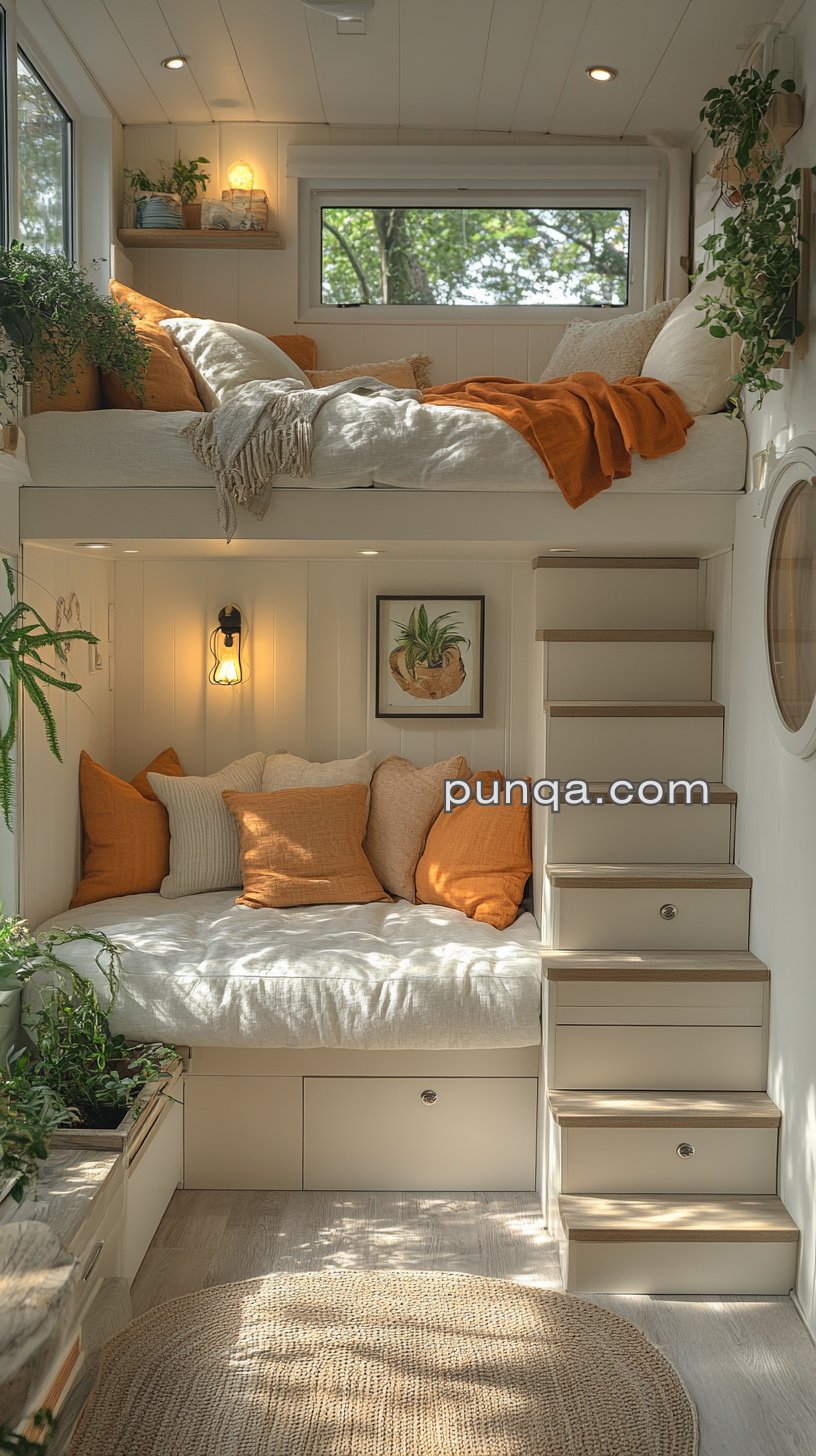
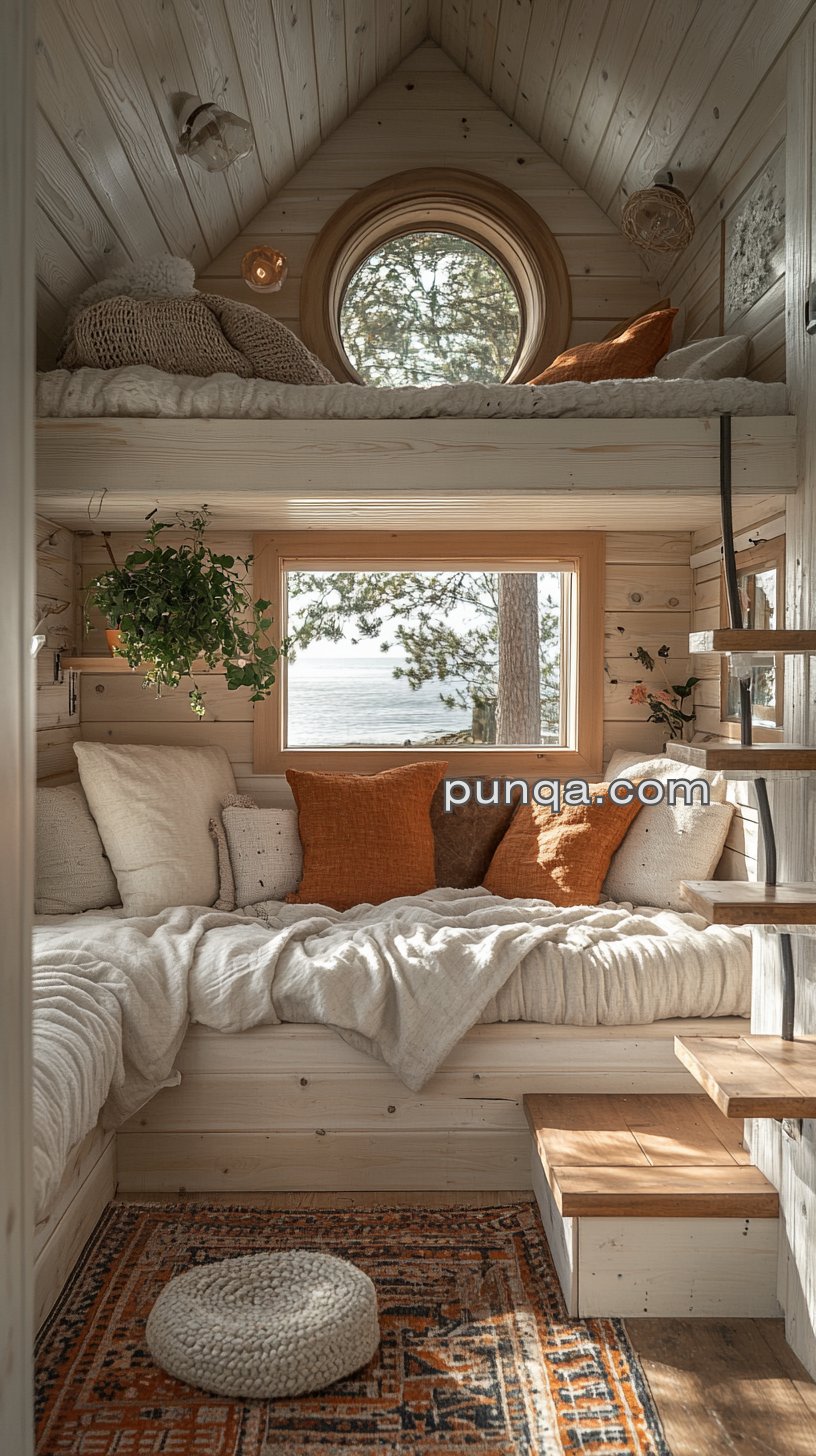
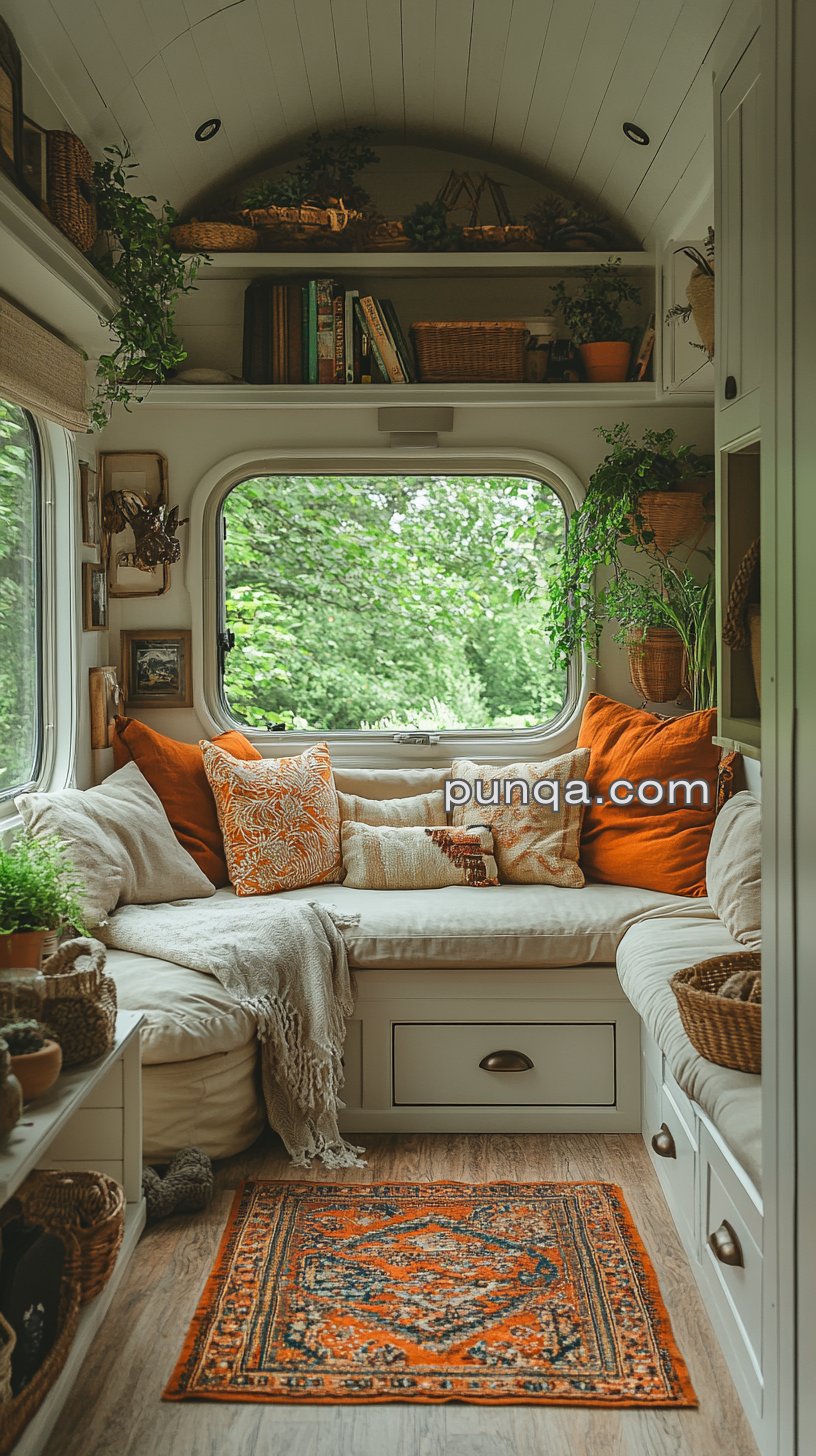
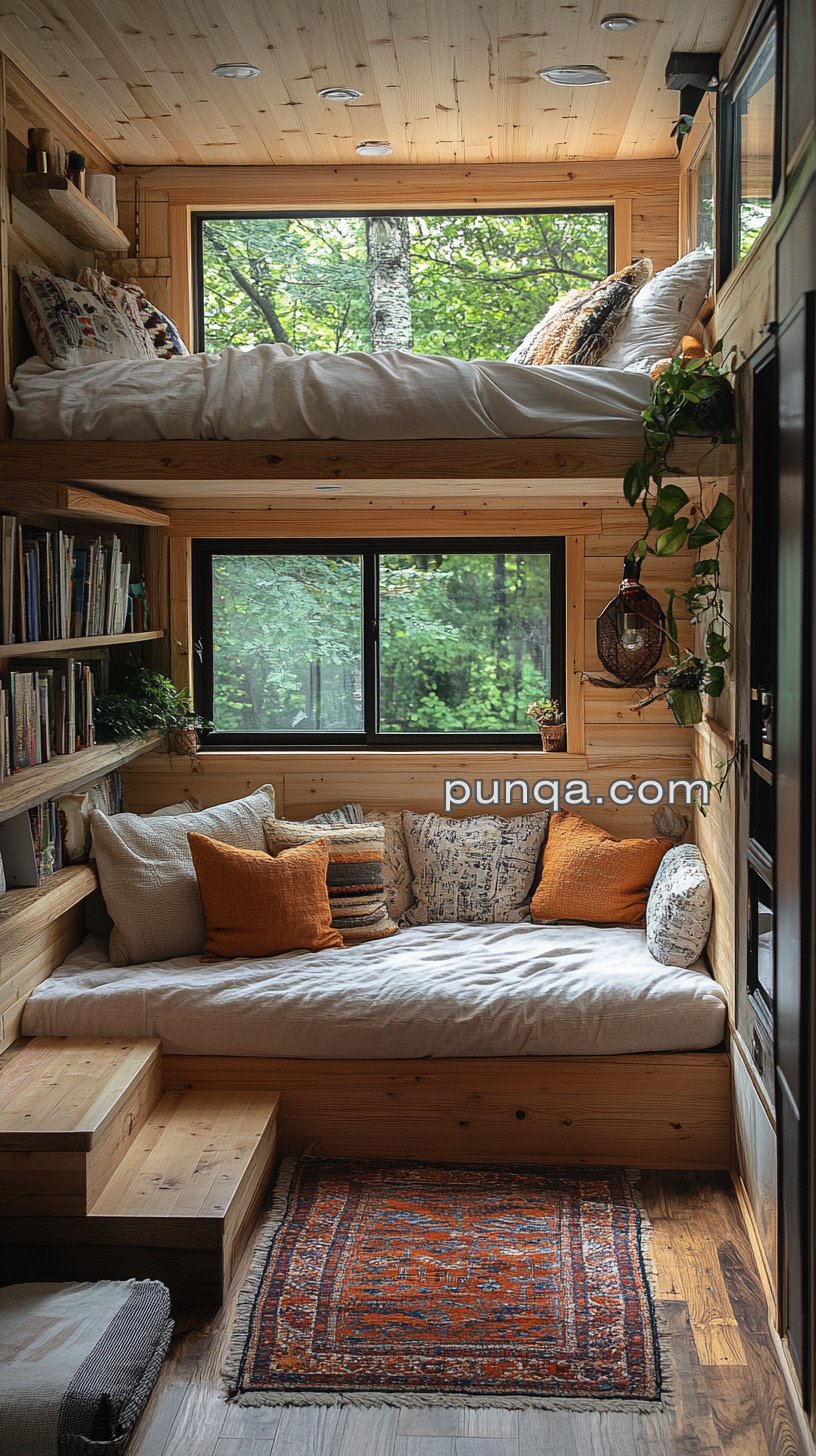
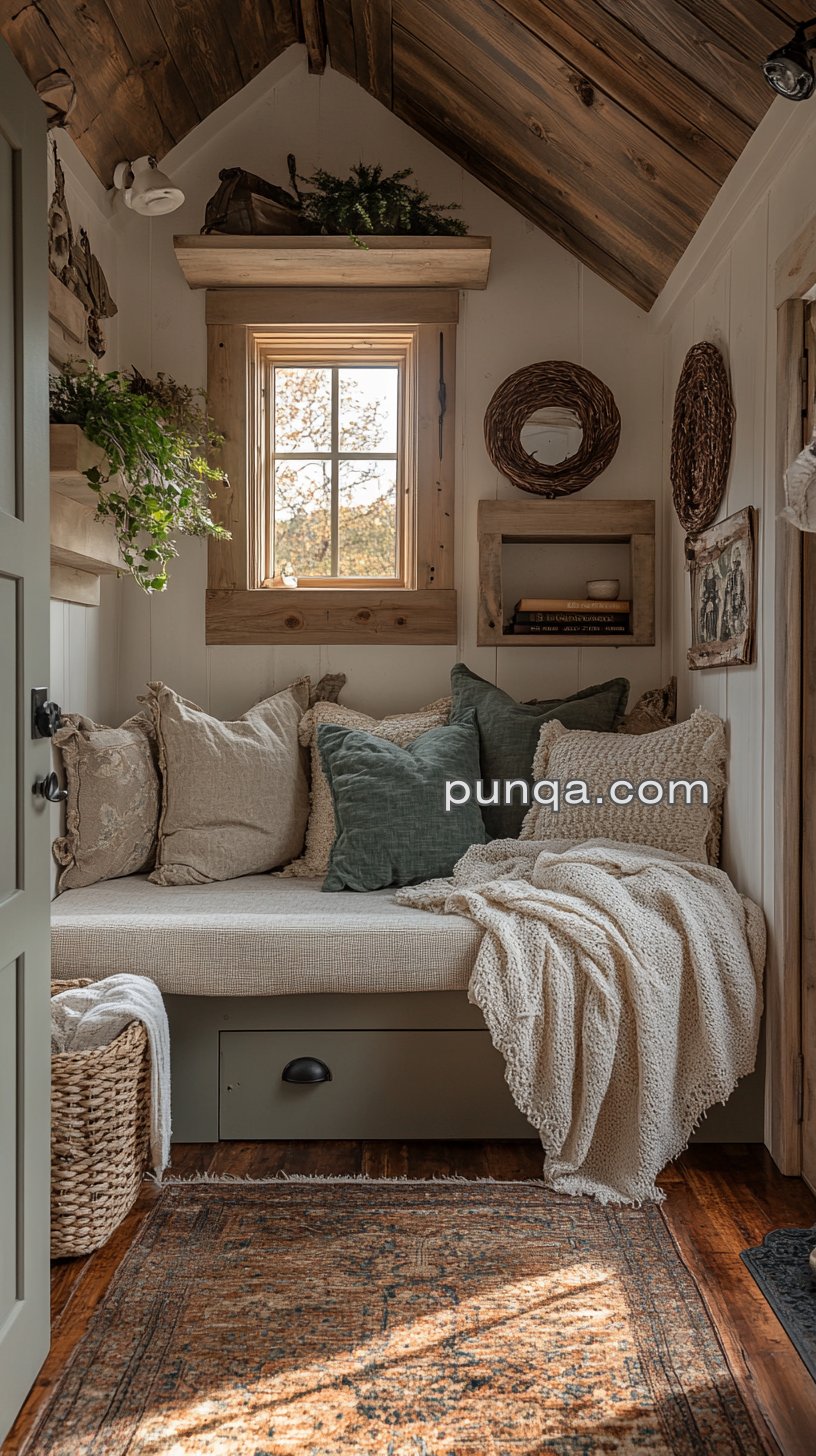

Martina Hughes is a talented writer for the Small Space Design category of Punqa, a blog dedicated to small home living. With a passion for maximizing functionality and style in compact spaces, Martina has been helping readers make the most of their homes for several years. Her writing covers a variety of topics, from innovative storage solutions and clever design hacks to tips on creating cozy and efficient living areas. Martina’s expertise in small space design has been featured in leading lifestyle publications, making her a go-to resource for those looking to optimize their homes. When she’s not writing, Martina enjoys experimenting with space-saving ideas in her own apartment and exploring urban design concepts.



